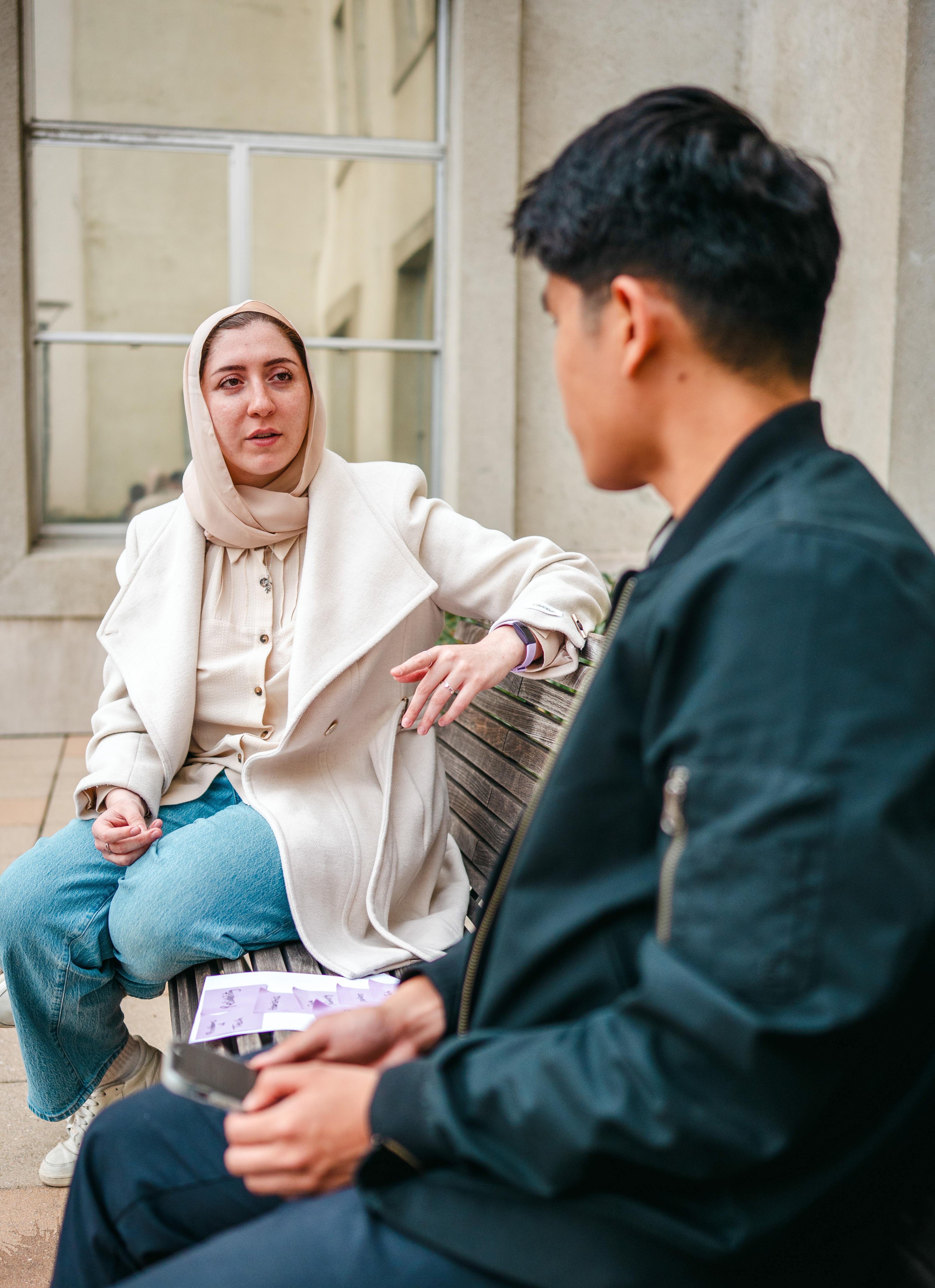
Advancing Racial, Economic, and Social Justice Through Teaching, Service, and Research 2024–2025


Advancing Racial, Economic, and Social Justice Through Teaching, Service, and Research 2024–2025
At the heart of UC Berkeley Law’s commitment to justice, the Clinical Program continues to stand out as a place where learning meets purpose. Over the past year, our 15 clinics — driven by the dedication and work of our students, faculty, and staff — deepened their impact in the East Bay, across the country, and around the world. In spring 2025, Alina Ball joined as director of the new Social Enterprise Clinic, Laurel Fletcher launched the new Global Rights Innovation Lab Clinic, and the Policy Advocacy Clinic began a new clinical offering specifically designed for 1Ls.
Amid this expansion, the year brought both significant challenges and renewed opportunities in fulfilling the Clinical Program’s mission to advance racial, economic, and social justice. Our work unfolds against a widening justice gap and growing threats to the rule of law. Clinics help narrow that gap by expanding access to legal representation and equipping the next generation of lawyers with the tools to advance social justice and serve the public interest. Our democracy depends on lawyers who will prioritize those most in need of legal protection — and who are prepared to challenge and dismantle the systemic barriers that gave rise to injustice in the first place.
Last year, our students challenged racial bias in capital punishment; secured clemency and resentencing victories; held the U.S. military accountable for contaminating Indigenous lands; achieved a landmark ruling against the U.S. Border Patrol’s excessive force; supported global investigations into the disappearance and murder of environmental defenders; advocated for reparations to communities affected by extractive projects; successfully obtained adjustment of immigration status for over 300 clients; ended youth restitution fines in California; fought exploitative criminal system fees nationwide (including Arizona, Colorado, Indiana, Louisiana, Minnesota, Oregon, and Washington); protected digital research freedoms; and defended affordable prison communications. From litigation and legislative advocacy to community education and academic reports with real-world impact, our work remains rooted in a commitment to client-centered advocacy and teaching students critical lawyering skills.
In a time of deepening inequality and instability in the rule of law, clinical legal education serves as both an urgent intervention and a long-term investment in justice. We are deeply proud of the work our students, faculty, staff, and partners have dedicated themselves to over the past year. We are prepared to continue the work of serving our communities and teaching our students, interrelated goals that advance justice. Thank you to all who participate in this collective effort.
In community,
Ty, Roxanna, Rebecca, and Laura
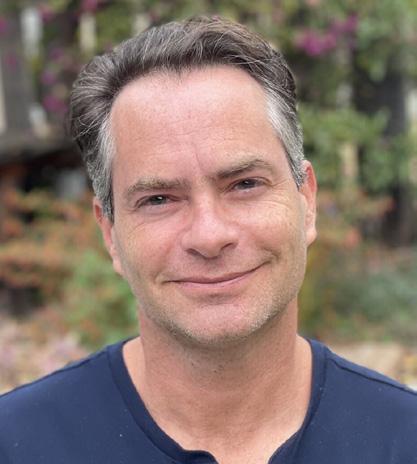
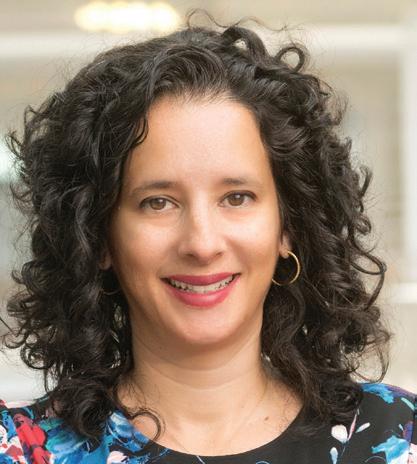
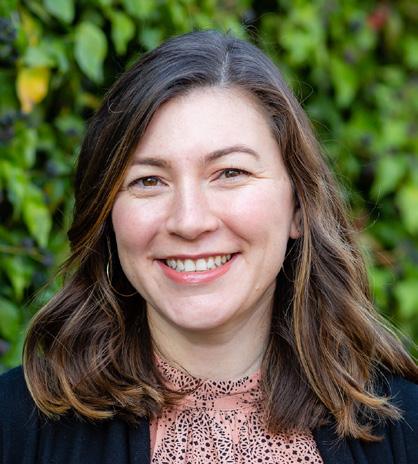
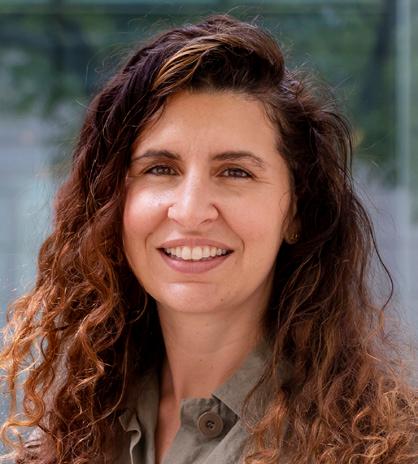
Clinic to classroom: 9 alumni became faculty at law schools nationwide this year
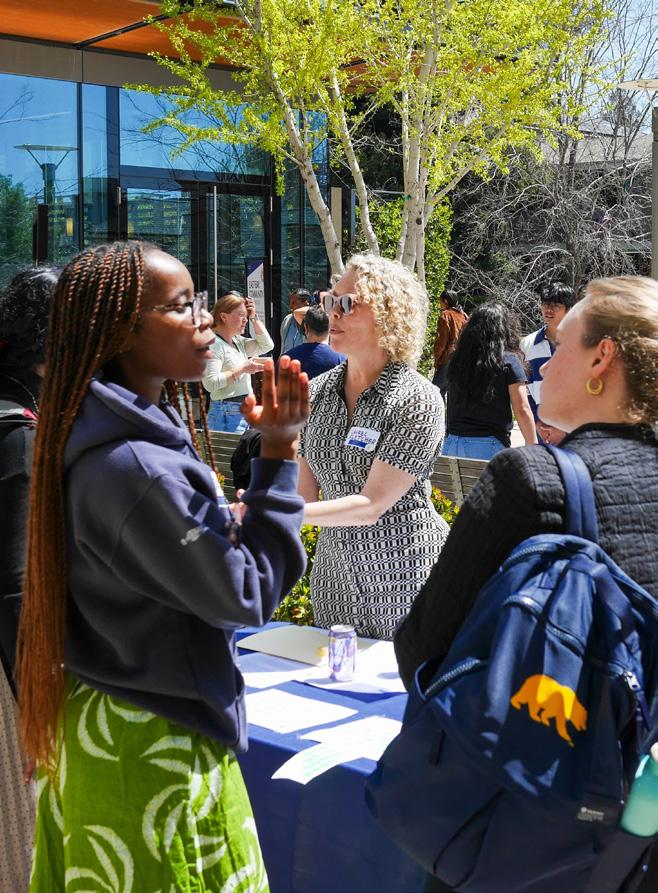
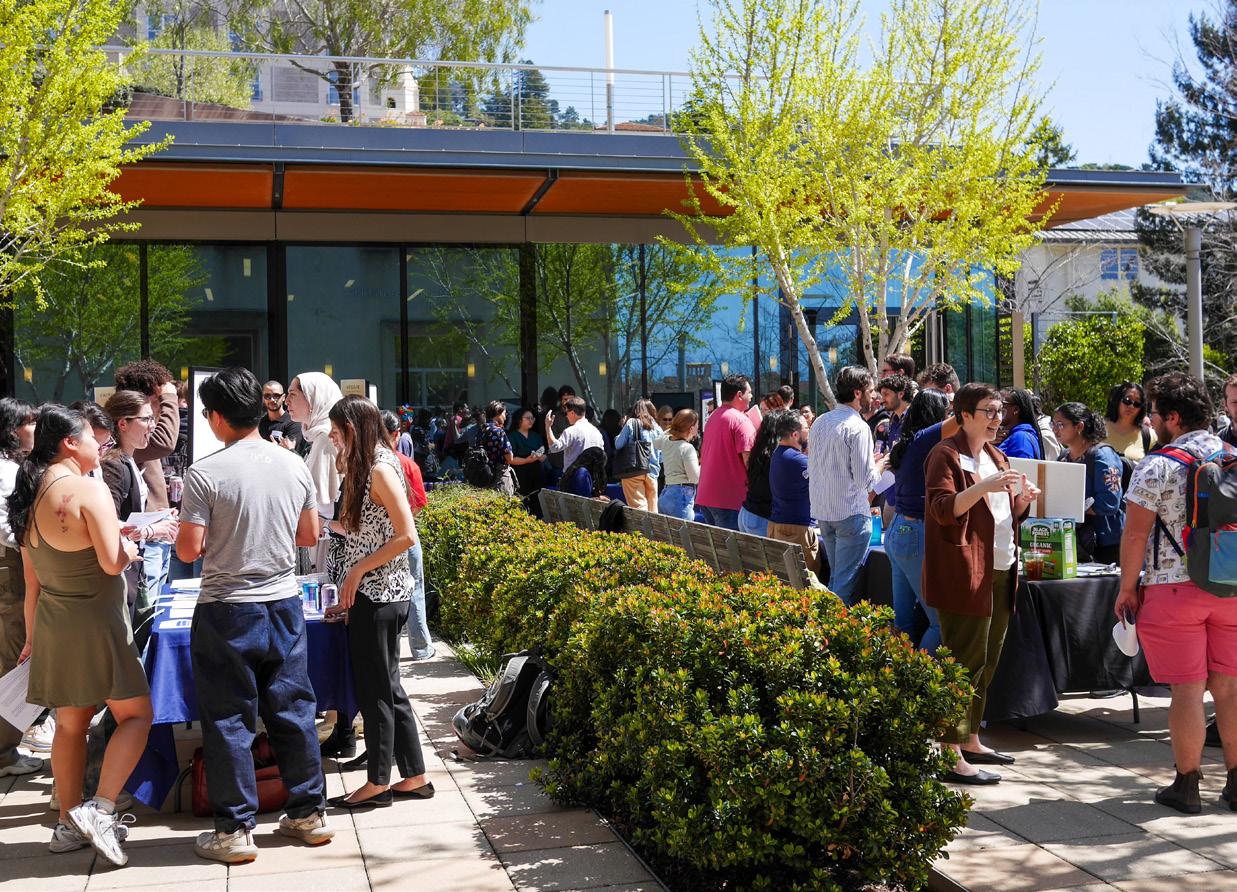
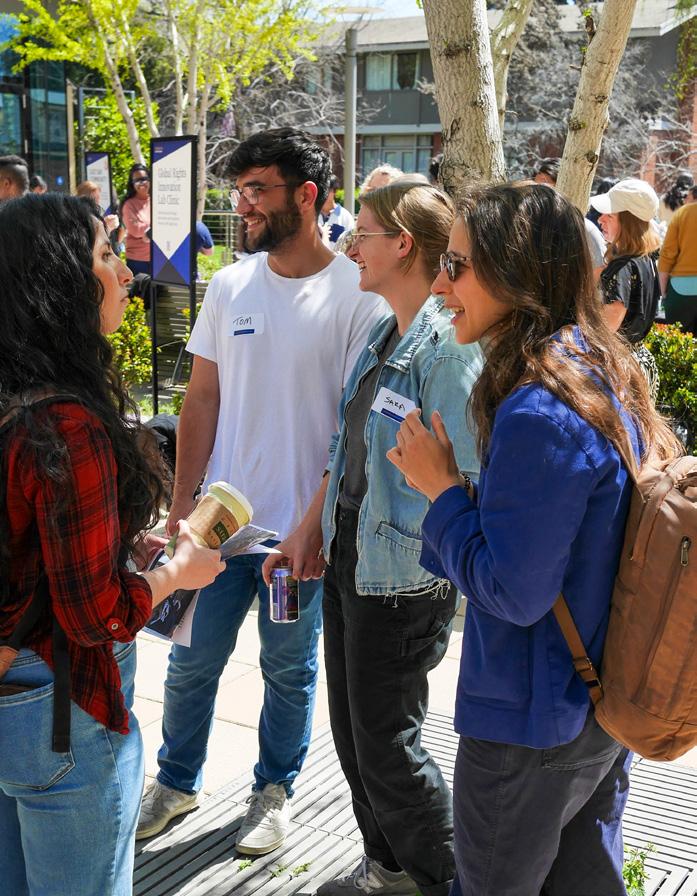
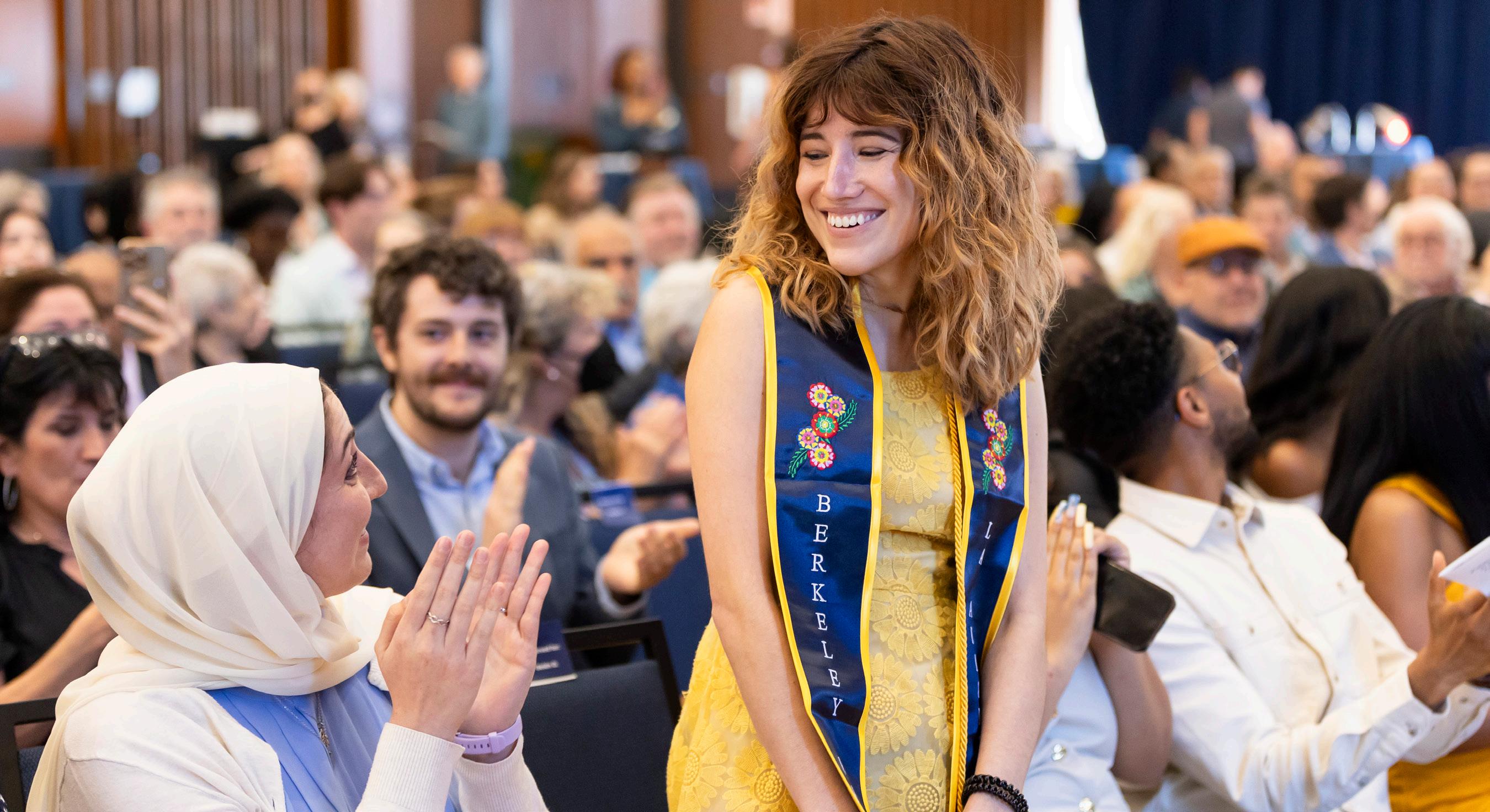
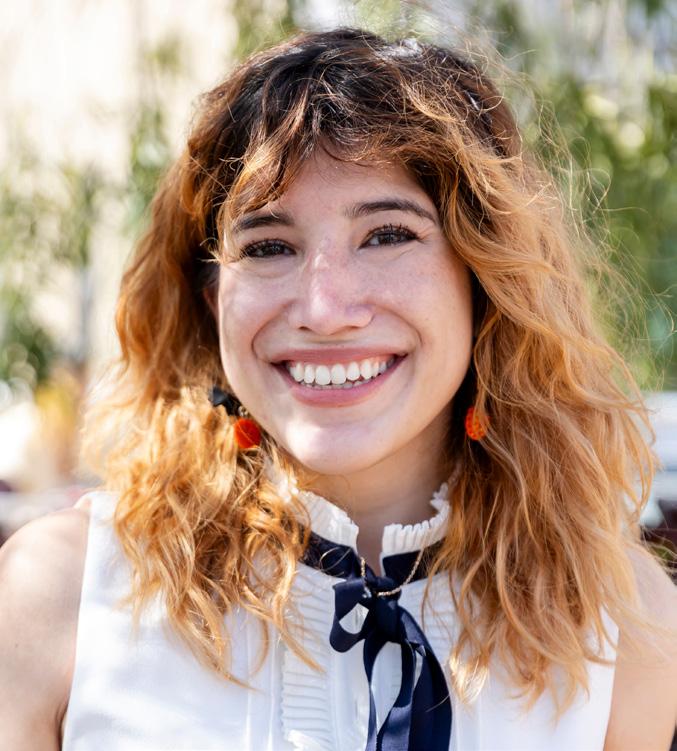
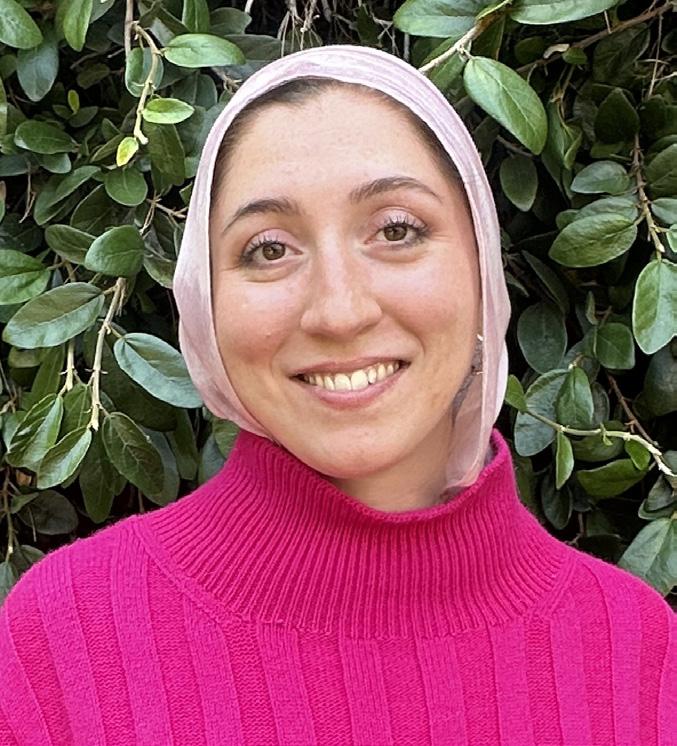
Belén de Leon ’25 emerged as a principled, strategic, and deeply compassionate advocate over four semesters in the Human Rights Clinic. De Leon took on complex legal challenges — from corporate accountability to counter-terrorism and crimes against humanity — consistently producing work marked by intellectual rigor and moral clarity. With a sharp eye for the limits of existing doctrine, she developed thoughtful, research-driven proposals to better serve clients and partners. A quiet leader, she exemplifies purposeful collaboration — uplifting peers and earning the trust of survivors and partners through empathy and resolve. De Leon meets uncertainty with courage and hardship with grace. This award powerfully affirms her brilliance, resilience, and unwavering belief in human dignity.
“Grounded in internationalist solidarity, the clinic and seminars exposed me to the panoply of interpretations and uses of human rights law, particularly that of Third World approaches to international law scholars, domestic advocates, and activists.”
Dana Dabbousi ’25 was part of the inaugural Global Rights Innovation Lab Clinic (GRIL) cohort where she conducted stakeholder interviews, tapped her professional network, and harnessed her STEM background and lived experiences for insightful analysis mapping the field. Her multidisciplinary collaboration skills deftly bridge law and technology, while her deep reflection on legal practice pushed the clinic’s development and shaped GRIL’s mission beyond her tenure. Well attuned to structural bias, Dabbousi thinks carefully about how GRIL will ensure datasets generate meaningful results for communities. As a 2L, she also contributed to the Environmental Law Clinic on a project supporting equitable, multi-local implementation of a California law that promotes solar energy access and economic justice.
“The intersection of technology and human rights is rapidly evolving. Building a clinic in this space has meant thinking in ways that are practical, innovative, and responsive to real-world needs.”
Founded in 2001, the Death Penalty Clinic seeks justice for individuals facing the death penalty by providing them with quality representation and offers students a rich opportunity for meaningful hands-on experience in high-stakes, complex litigation. Students participate in field investigations, consult with experts, draft pleadings, prepare for hearings, and help shape case strategy. Through direct representation, policy advocacy, and friend-of-the-court briefs, the clinic also exposes and tackles problems endemic to the administration of the death penalty, such as racial discrimination, prosecutorial misconduct, ineffective assistance of counsel, and unconstitutional methods of execution.
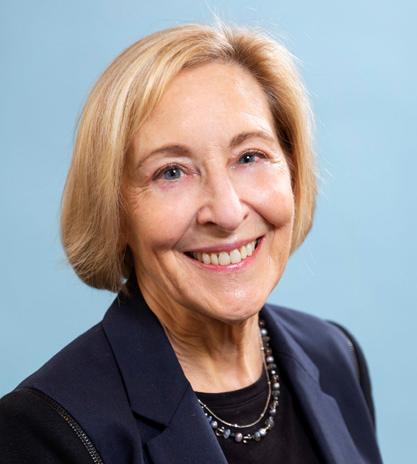
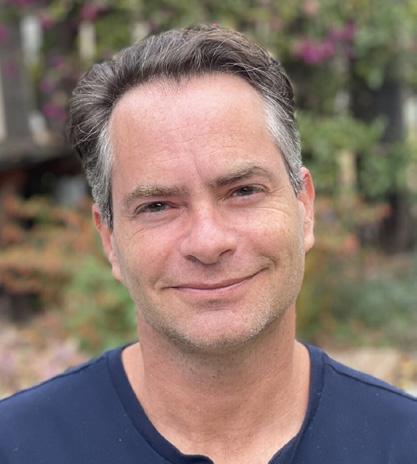
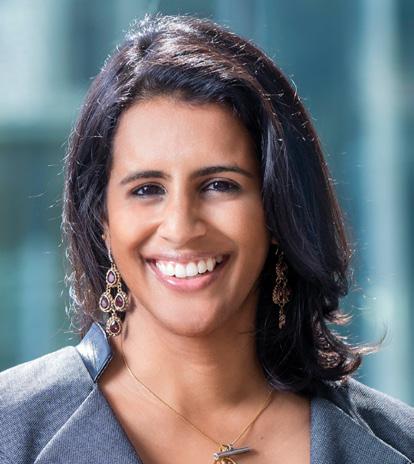
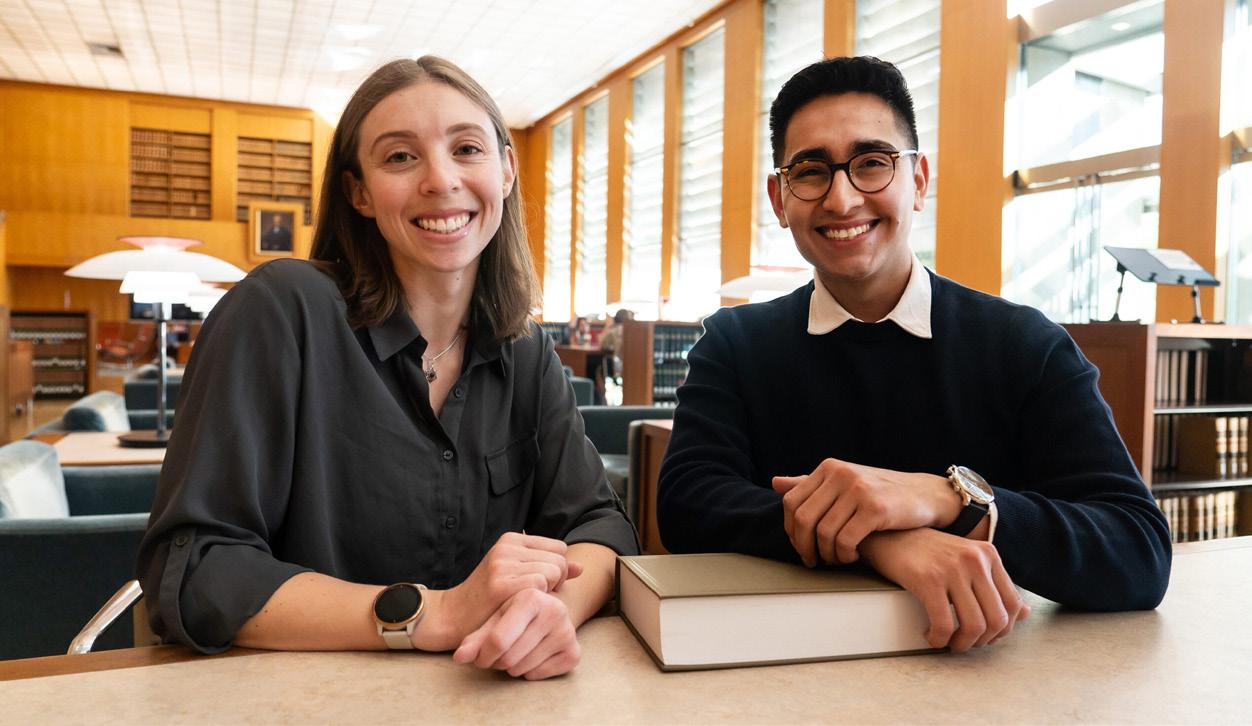
Death Penalty Clinic students Niki Kates ’25 and Robin Martinez ’25 helped draft an amicus curiae brief in support of petitioners who are challenging the administration of the state’s death penalty in the California Supreme Court on the grounds that it is racially discriminatory. For the brief, which the clinic filed on behalf of a group of constitutional law scholars, Kates researched how the California Supreme Court’s record of state constitutionalism is fundamental to America’s system of federalism, and Martinez examined California’s history of racial and ethnic discrimination in capital punishment.
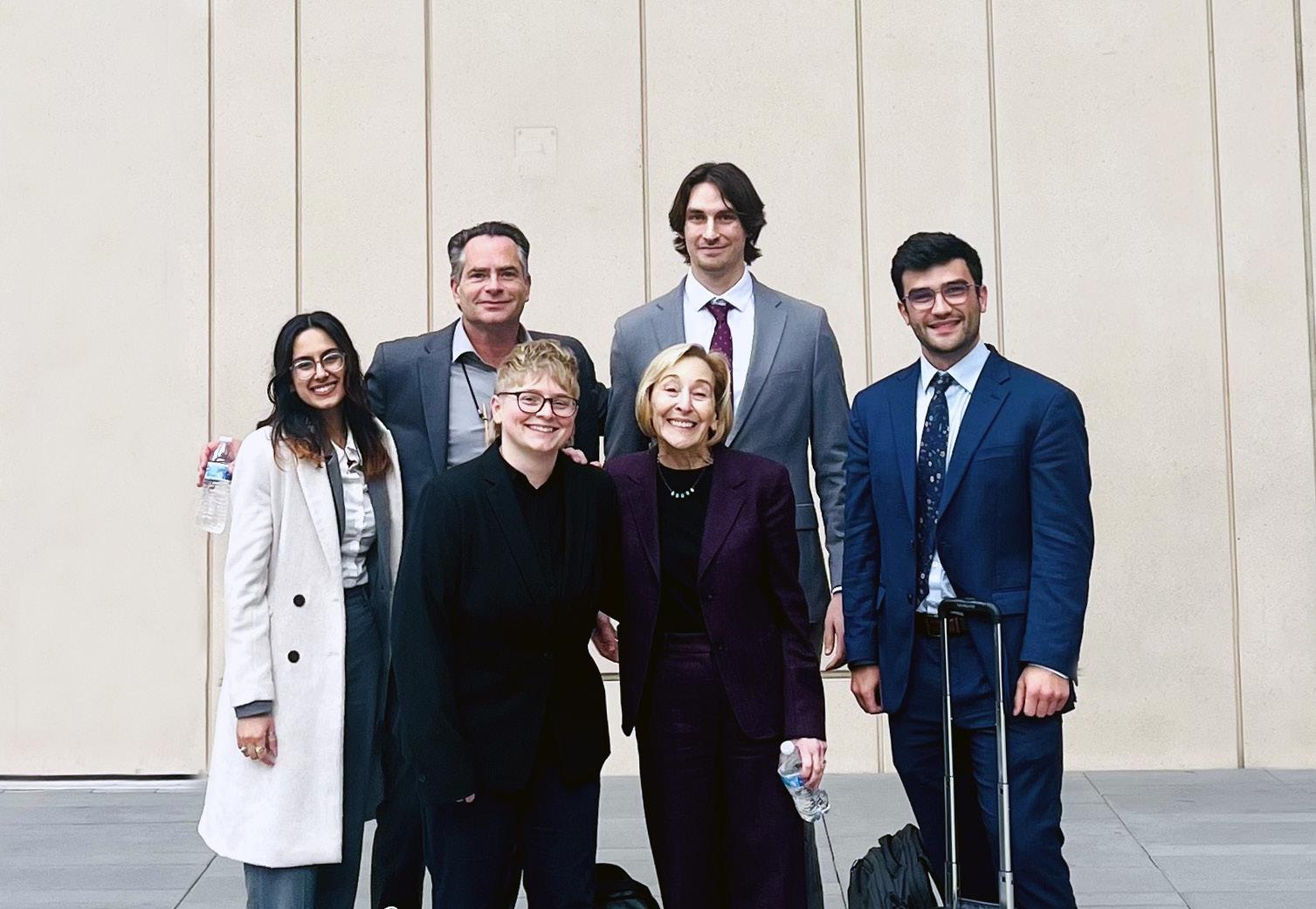

After three decades on California’s death row, a client the clinic has represented for more than 20 years was resentenced to life without parole. A team of four students contributed to the briefing the clinic filed before the resentencing hearing. The clinic continues to represent the client in litigation challenging his conviction and sentence in state and federal court.
Six Death Penalty Clinic students spent the year supporting longstanding Alabama client Mark Jenkins’s clemency and litigation efforts. The team — building on the work of numerous alumni — put finishing touches on a clemency video and petition, traveled several times to Alabama and Southern California to interview and record witnesses, and filed multiple pleadings relating to a pending state post-conviction petition. Four team members had the opportunity to travel to St. Clair County, Alabama, for oral argument on the petition.
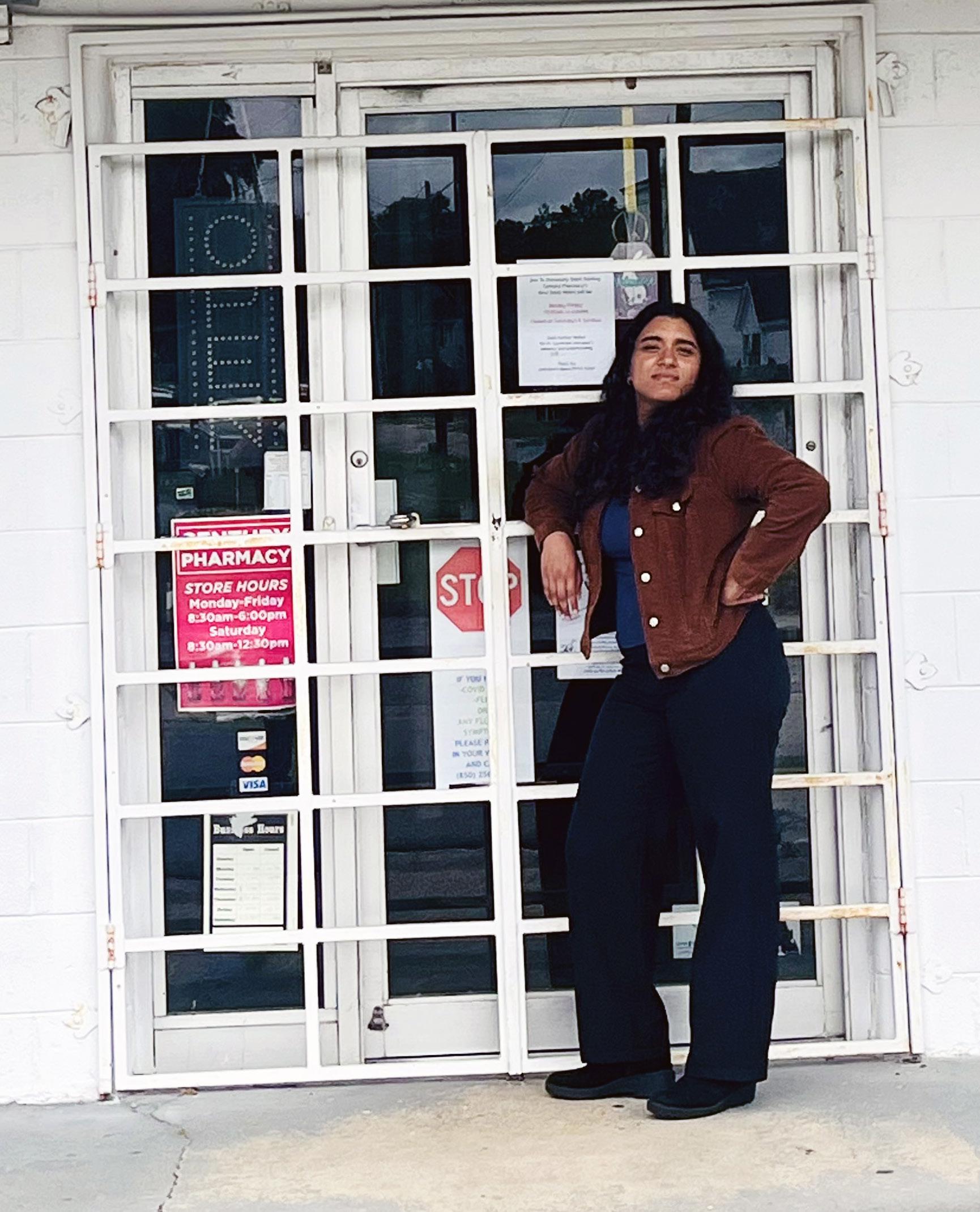
Faculty Spotlight — Mridula Raman Raman Revives Clinical Conference
In February 2025, nearly 70 clinicians from six Northern California law schools gathered at UC Berkeley Law to share experiences and lessons from their work, as well as to forge a more tightly knit community.
Death Penalty Clinic Deputy Director Mridula Raman led the effort to revive the conference, which had been dormant for years. The conference invigorated the attendees and will once again become an annual tradition.
“The conference reignited a sense of connection and really underscored for me what a vibrant and supportive community this is.”
— Death Penalty Clinic Deputy Director Mridula Raman
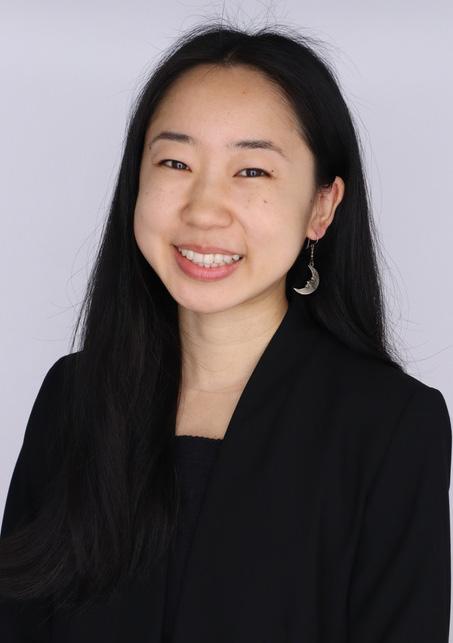
“I’m so grateful to have met and worked with some of the most kind and dedicated students and supervisors this year. This community taught me just how much creativity there can be in zealous advocacy and what it truly means to show up for your clients day in and day out.”
Navdeep Bal, inspired by her 2L year in the Death Penalty Clinic, will be spending the fall of her 3L year at the Southern Center for Human Rights in Atlanta, assisting in the representation of clients on death row in the Deep South. Bal is pictured here on an investigative trip to Alabama in May 2025.
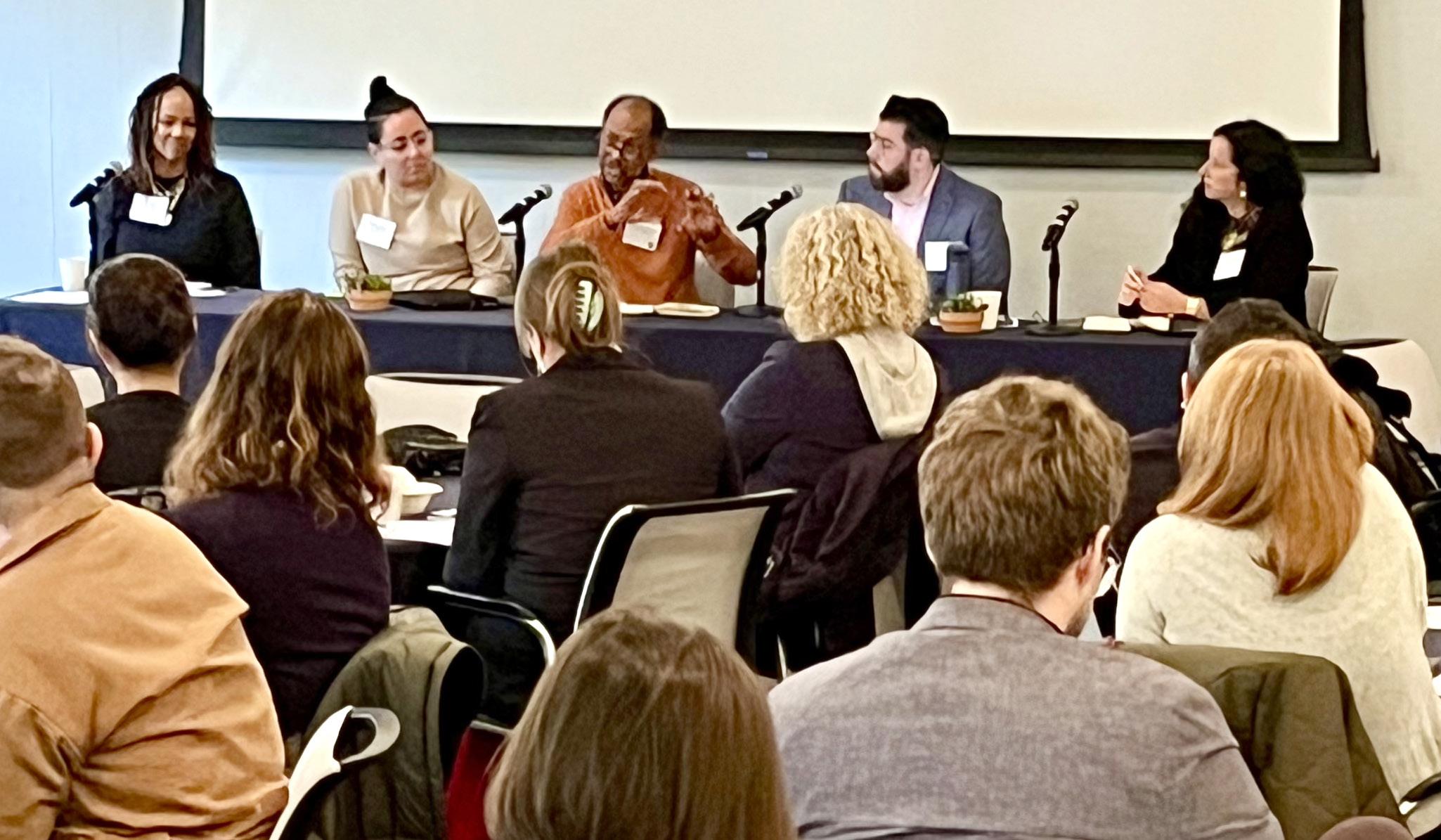
Alumni Spotlight — Meredith Huang ’23 Justice in Action
Meredith Huang ’23, a Death Penalty Clinic alum and Sax Prize winner, joined Phillips Black, Inc. as a law fellow through UC Berkeley Law’s public interest placement program. Her first two cases marked inspiring early successes.
Huang helped to secure a commutation for Barry Garcia through direct advocacy with Gov. Kelly Armstrong's office. Garcia had been the only person in North Dakota serving life without parole for a juvenile conviction. Huang’s work brought closure to over a decade of litigation and gave Garcia a chance at parole.
In Andrew v. White — the first case in which Huang appeared on a pleading — her work contributed to a rare U.S. Supreme Court win in favor of a capital habeas petitioner. Her research helped expand federal habeas protections and spotlight sex discrimination in capital sentencing.
In just two years since graduating, Huang has reshaped lives and legal precedent.
The Environmental Law Clinic tackles critical environmental justice and health issues while providing students with hands-on experience representing clients. The clinic’s tools include litigation, agency practice, legislative drafting, and policy analysis. Clinic projects reduce human exposure to pollution, toxic chemicals, and radiation; promote racial and economic equity in environmental policy; and increase access to nature for all. The clinic aims to make students creative, effective, culturally competent lawyers; to make an environmental difference; and to address unmet legal needs.
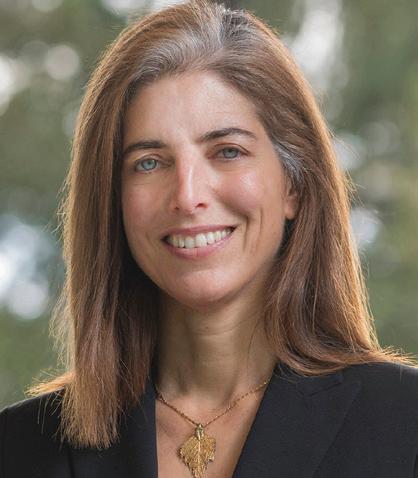
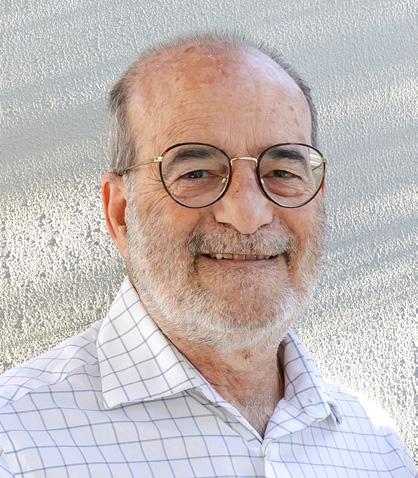
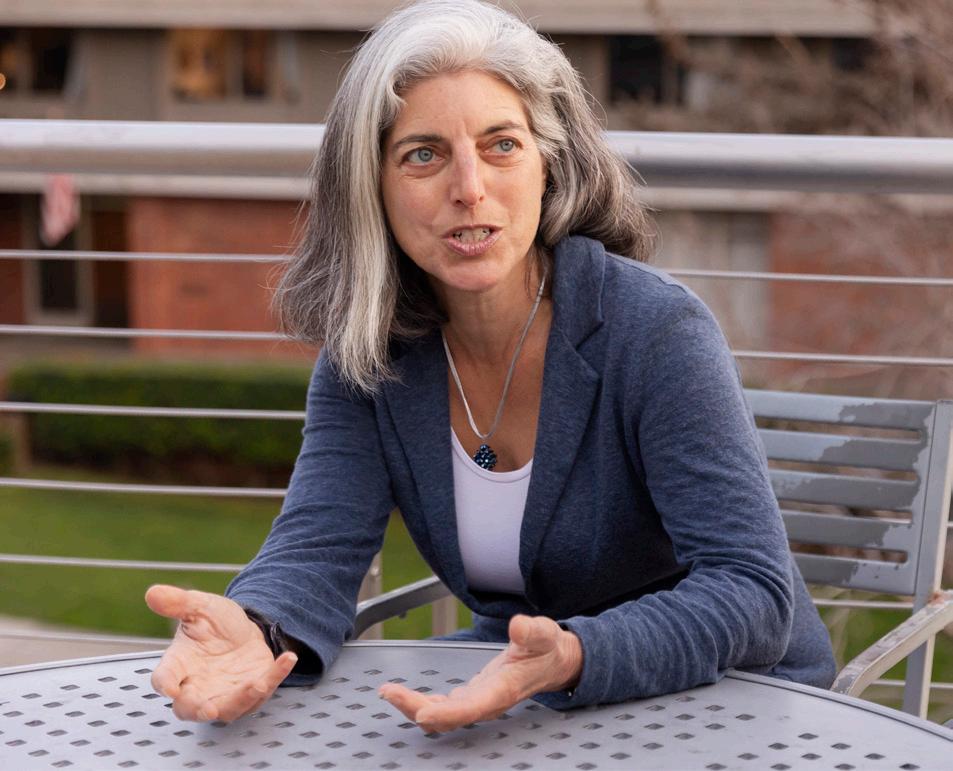
This spring, three Environmental Law Clinic alumni — two still enrolled in law school, one recently graduated — took on an unexpected emergency task in helping Director Claudia Polsky file litigation against the Trump Administration (Thakur v. Trump, Northern District of California, filed May 2025). This lawsuit, for which the alumni research help was critical, challenges unconstitutional and otherwise unlawful executive orders and administrative agency actions that abruptly terminated hundreds of University of California research grants. Many of these relate to climate change, access to safe drinking water, air pollution reduction, and other environmental topics. On short deadlines, alumni prepared top-notch legal memos and other work products to assist the lawsuit, which in June yielded a preliminary injunction requiring large-scale grant reinstatement.
Environmental Law Clinic alumni reflect on their litigation tasks, and how the work connected to their clinic experience:
3L Jordan Perry
“I wrote a memo on whether the National Science Foundation could refuse to dispense money appropriated by Congress for reasons specified by Congress. The Environmental Law Clinic helped me prepare for this by providing practice with quickly tackling research tasks on a deadline. When you really care about the people and causes you’re fighting for, it makes the law feel tangible, relevant, and urgent in a way that reading torts cases from the 1800s does not. I worked in the clinic for three semesters — two for credit and one for about 70 pro bono hours. Each semester required responding to different circumstances. Whether it’s a new Navy report or an unconstitutional executive order, I hope to face current and future challenges with the ‘Bring it on!’ attitude I learned in the Environmental Law Clinic."
“For the lawsuit, I researched the purpose and structure of the Department of Government Efficiency, as well as its constitutionality. Given the project’s tight timeline, I relied on my ability to quickly research complex questions and understand nuanced legal arguments — all honed in the Environmental Law Clinic. I’ve participated in the clinic for three semesters since 1L, spending my entire 2L on the Hunters Point litigation. The Environmental Law Clinic has been my most defining experience in law school, and the best foundation for an environmental justice career. It has taught me how to continually advocate and fight for your community, even when the odds are stacked against you.”
“I worked on research assignments related to canceled grants — specifically, identifying the different language used in termination letters, and if AI was a part of the termination process. Additionally, I was able to draft a declaration for one of the researchers who lost grant funding. Having gained research skills in the legal and non-legal context in the Environmental Law Clinic was definitely beneficial. Sometimes you need to look for evidence and answers outside of a court system — articles, blogs, social media — and that was true in the clinic and on this task. I was in the clinic for a full year. My takeaways include: putting your client’s needs first, understanding where your work/labor is part of the bigger picture, and communicating as a team. Most of all, it’s easier to work on hard projects when you believe in them.”
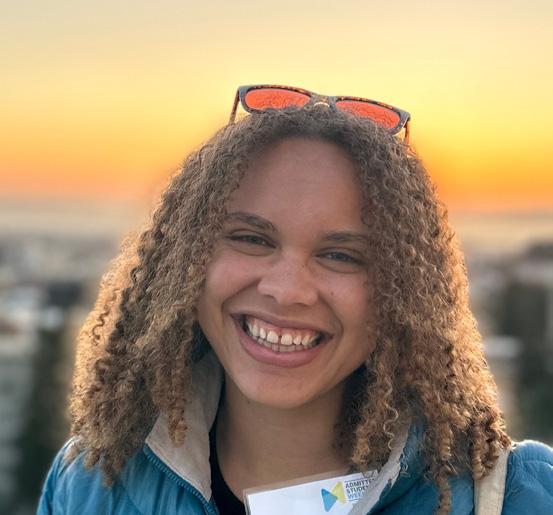
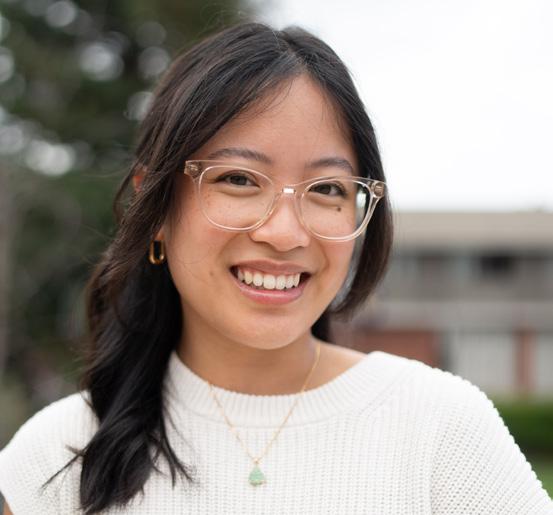
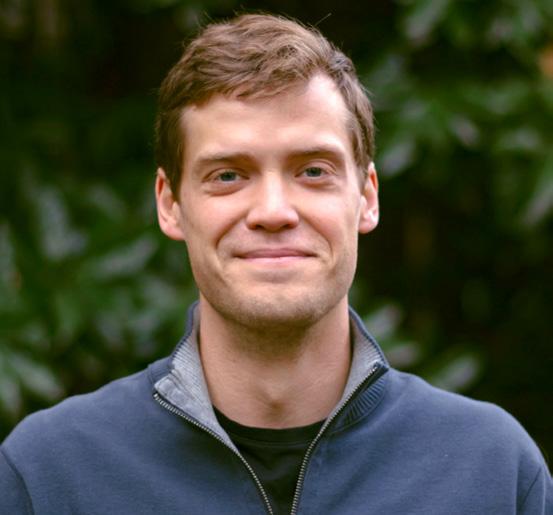
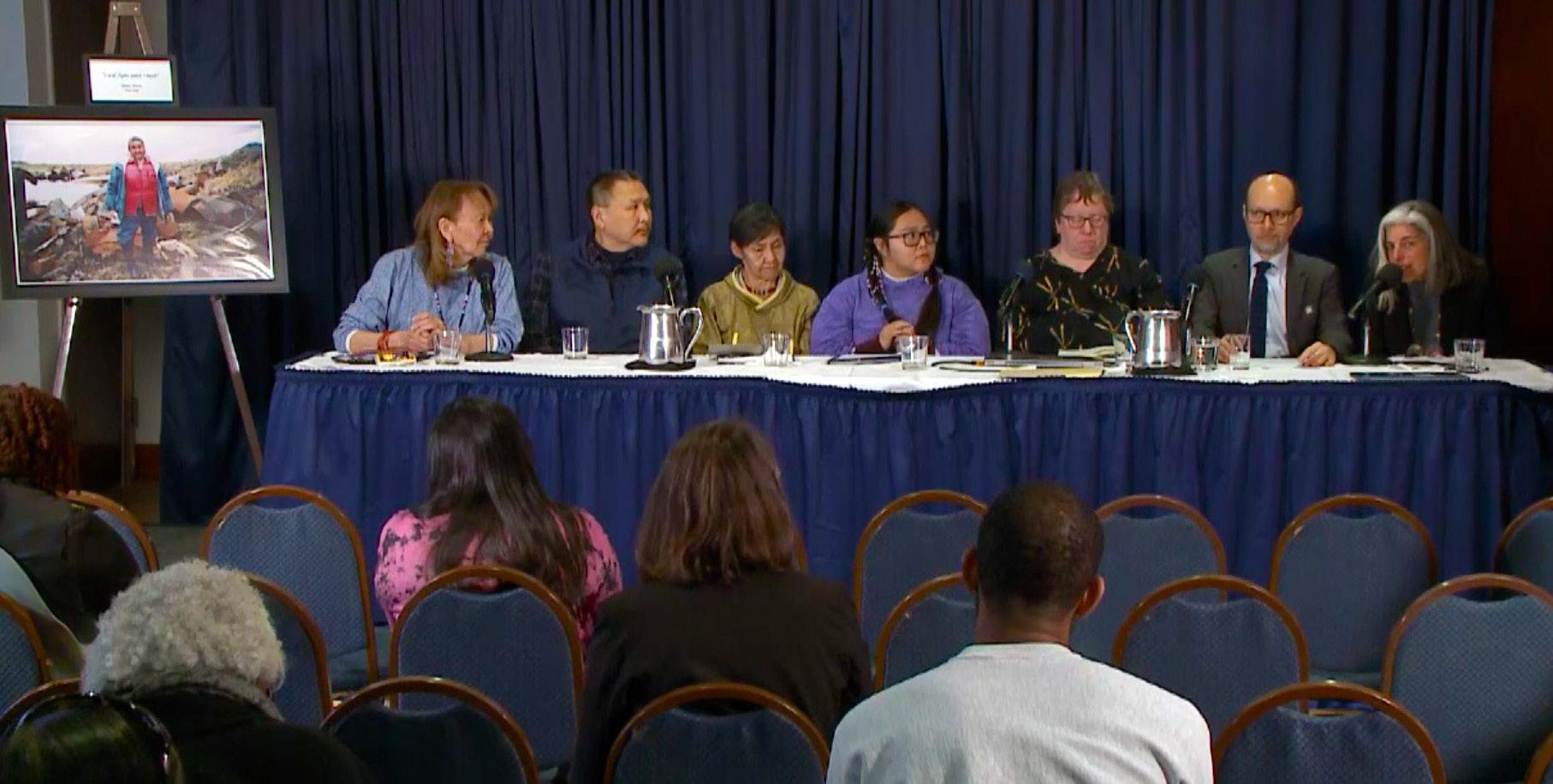
Sivuqaq (aka St. Lawrence Island) is an island in the Bering Sea that hosted two military bases during the Cold War. After the bases closed, the U.S. Army Corps of Engineers conducted a partial cleanup of the hazardous and toxic materials the military left behind. The Indigenous Sivuqaq communities have long criticized the cleanup for not adequately remediating the contaminants, endangering their health and safety: cancer and other diseases that never afflicted their health before the military presence have become commonplace. This past year, the Environmental Law Clinic continued its investigation of cleanup deficiencies and associated health harms to Indigenous residents, and assisted the client, Alaska Community Action on Toxics (ACAT), in filing a complaint with the United Nations Special Rapporteur for Toxics seeking a U.N. investigation into human rights violations associated with remaining site contamination.
At a March 2025 press conference in Washington, D.C., Yupik community delegates found a receptive listener in the Special Rapporteur, who attended in person, spoke passionately about the problem of military toxics worldwide, and met with the clients thereafter. “The injustices against my people by the military have been devastating to our health and well-being,” said Vi Waghiyi, Native Village of Savoogna Tribal Citizen and Environmental Health and Justice Director with ACAT. “This is very personal to me with the deaths in my immediate family and loved ones in the communities due to cancer. We are here to hold the military accountable and to seek justice for the violations of our human rights.” Merle Apassingok, elder and leader from the Native Village of Gambell, added: “Sivuqaq was always known as a place of wellness prior to the contamination by the military and we are working to restore it again as a place of wellness.” We look forward to continued work with ACAT through and beyond U.N. mechanisms to redress the tragic situation on Sivuqaq.
Litigation Against the U.S. Navy and EPA, Seeking a Health-Protective Cleanup of the former Hunters Point Naval Shipyard
For several years, the Environmental Law Clinic has represented Greenaction for Health and Environmental Justice (Greenaction) — a San Francisco-based community group — in an investigation into the U.S. Navy’s radiological cleanup of the Hunters Point Naval Shipyard, aiming to protect the health of Bayview Hunters Point residents. Bayview Hunters Point is a low-income, historically Black neighborhood that abuts the shipyard and is affected by local pollution from numerous sources. The clinic sued the Navy and EPA in spring 2024, alleging violations of the Superfund cleanup law. This past year, clinicians continued to advance the case. Among other things, they successfully defended the suit from the government’s motion to dismiss; amended the complaint to comport with the judge’s order on the motion; and defended the suit from the government’s second motion to dismiss, a decision on which is pending as of the time of this report. Students also helped prepare for a motion for summary judgment to be heard in fall 2025.
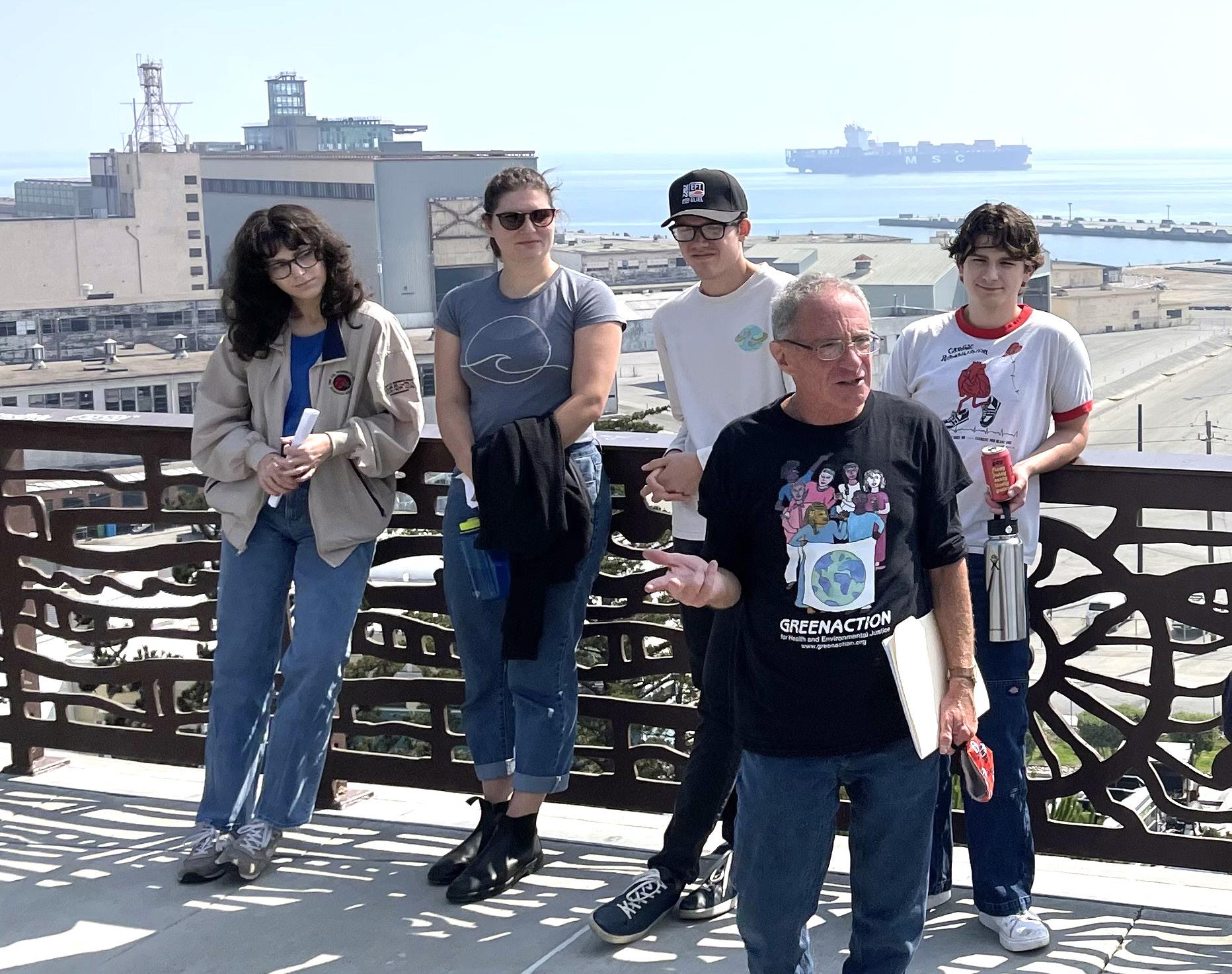
The Global Rights Innovation Lab Clinic (GRIL) is one of the newest clinics at UC Berkeley Law. GRIL is dedicated to reimagining human rights advocacy for the digital age. The clinic's mission is to equip students with the skills and experience to address complex human rights challenges at the intersection of law, data science, and technology. Through a multidisciplinary, hands-on approach, students generate datadriven legal analysis, perform advanced data analytics, and create digital storytelling tools to support justice campaigns for client organizations. GRIL’s model emphasizes ethical, human rights-centered innovation, preparing the next generation of law and technology professionals to harness data for good.
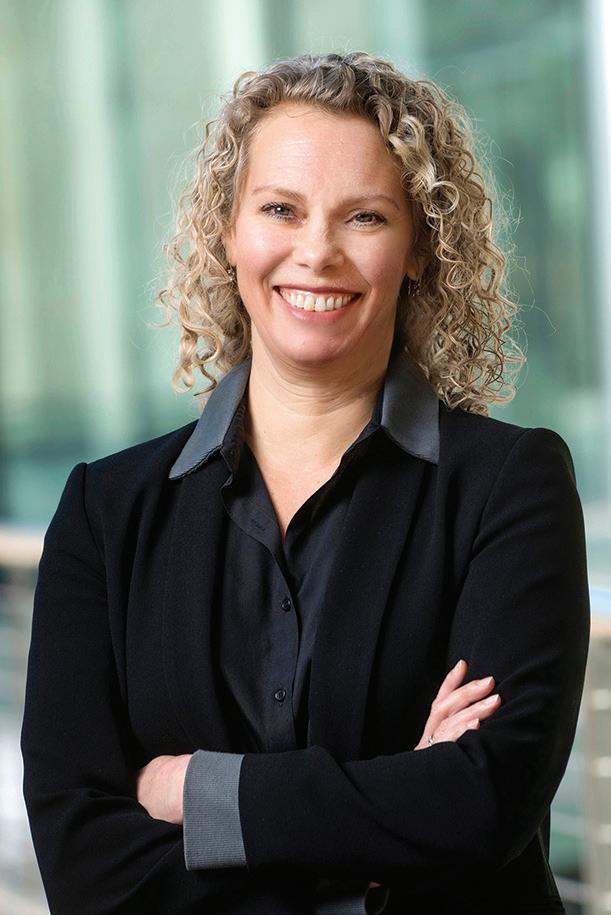
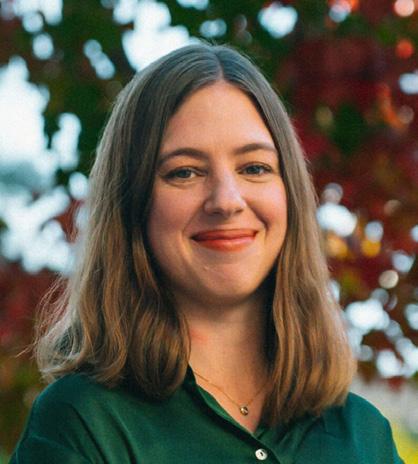

The Global Rights Innovation Lab Clinic (GRIL) launched this spring to address a critical gap in the human rights field: the untapped potential of data science and digital technologies in human rights advocacy. The inaugural semester was a dynamic journey of discovery as GRIL engaged with stakeholders and students to explore the challenges and exciting possibilities of bringing emerging technologies into the field. The enthusiasm encountered confirmed a real hunger for innovation and affirmed the clinic’s mission.
In designing the service model, GRIL asked how a university-based clinic could contribute to the emerging field of applied technology in human rights advocacy. Guided by design-thinking principles that center stakeholder's needs, desired outcomes, and well-being, GRIL identified three core services the clinic will provide: (1) human rights litigation support through data-driven legal analysis; (2) advanced data analysis and modeling to uncover patterns and generate actionable insights for accountability; and (3) digital storytelling to create compelling advocacy narratives. In fall 2025, multidisciplinary student teams from the law, information, and public policy schools will serve client organizations, gaining hands-on experience and making a tangible impact.
By leveraging UC Berkeley’s strengths, GRIL is cultivating a new generation of human rights and public interest leaders, ready to shape the future at the intersection of law, data, and technology.
GRIL Clinical Director Laurel E. Fletcher and Clinical Supervisor Valentina Rozo Angel were selected as one of just 25 innovative teams to present their pioneering new approaches to human rights at the 2025 Future of Rights and Governance Conference sponsored by the New York University School of Law Center for Human Rights and Global Justice. The 25 “experiments for change” offer forwardlooking strategies to address pressing challenges in the field. GRIL faculty presented to a vibrant, solutions-driven community of legal experts, artists, social scientists, governance professionals, and grassroots practitioners. The conference provided an inspiring platform for collaboration, creative problem-solving, and the exchange of bold ideas that are shaping the future of rights and governance worldwide. Fletcher and Rozo Angel published an article on GRIL’s clinic model in Open Global Rights
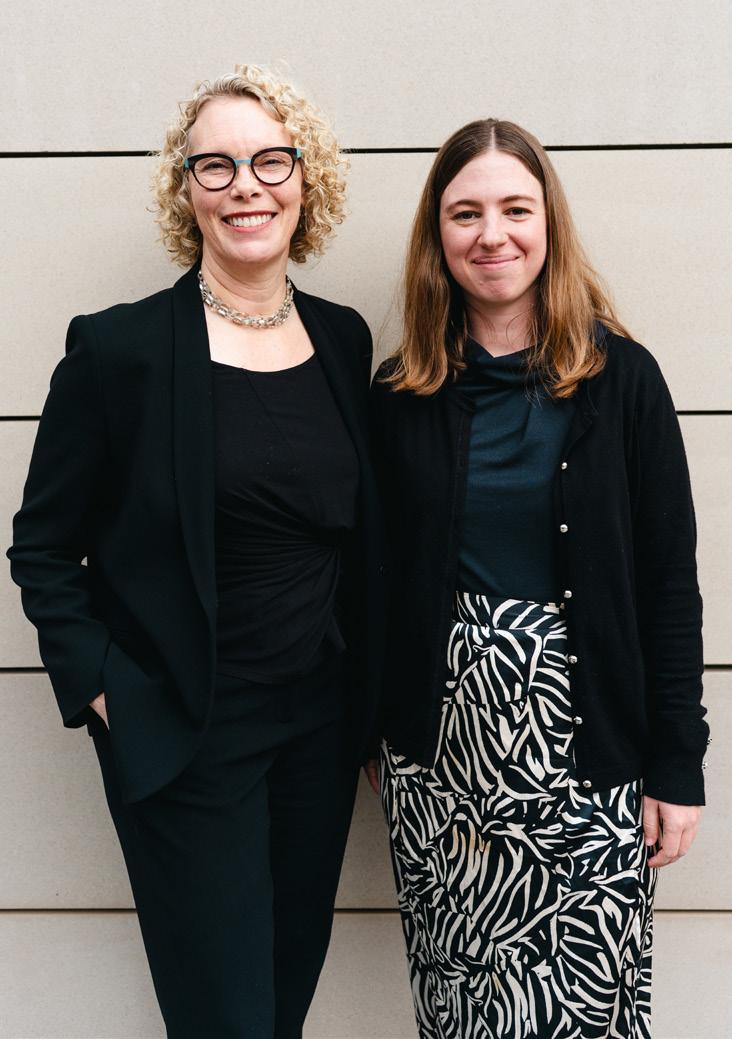
Valentina Rozo Angel is the data and technology clinical supervisor at GRIL, where she brings her expertise in data science and human rights advocacy to lead innovative, multidisciplinary projects. Her work includes applying advanced analytics to pressing global issues, from investigating the dynamics of armed conflict in Colombia to examining responsible AI practices worldwide. Rozo Angel’s experience spans roles at Dejusticia, the Colombian Truth Commission, the Human Rights Data Analysis Group, and the U.N. Special Rapporteur on Extreme Poverty and Human Rights, reflecting her commitment to leveraging data and technology for impactful social change.

This summer, GRIL released “Designing Justice: Data Science for Human Rights Advocacy: A Blueprint for the Global Rights Innovation Lab Clinic.” This report offers an in-depth look at GRIL’s model, capturing its vision, research process, and the insights gained from its strategic planning process. Inside, you will find a summary of the clinic’s conceptual approach, the methods it used to engage with stakeholders and students, and the key findings about this emergent field that shape GRIL’s direction. The blueprint also explores how GRIL is developing innovative services at the intersection of law, data science, and digital storytelling, and highlights the impact it aims to make in the human rights field.
GRIL Director Laurel E. Fletcher received the prestigious 2025 Stefan A. Riesenfeld Memorial Award honoring her outstanding impact on the field of international law. Renowned for her innovation, rigor, and mentorship, Fletcher has shaped the careers of hundreds of students and inspired colleagues with her commitment to justice and human rights during her 26 years leading transformative work at UC Berkeley’s Human Rights Clinic. In her keynote address, "Reimagining Human Rights Advocacy in a Changing World: Harnessing Technology and International Law", Fletcher argued that to defend international rule of law lawyers need to apply new technologies: “We need to bring new tools to address the large-scale violations of armed conflict, the climate emergency, surveillance capitalism, and other transnational threats to societies. We see an opportunity to help advocates access and analyze a sea of relevant data to identify the prevalence of violations, patterns of harm, and paths of responsibility to build cases for justice," she said.
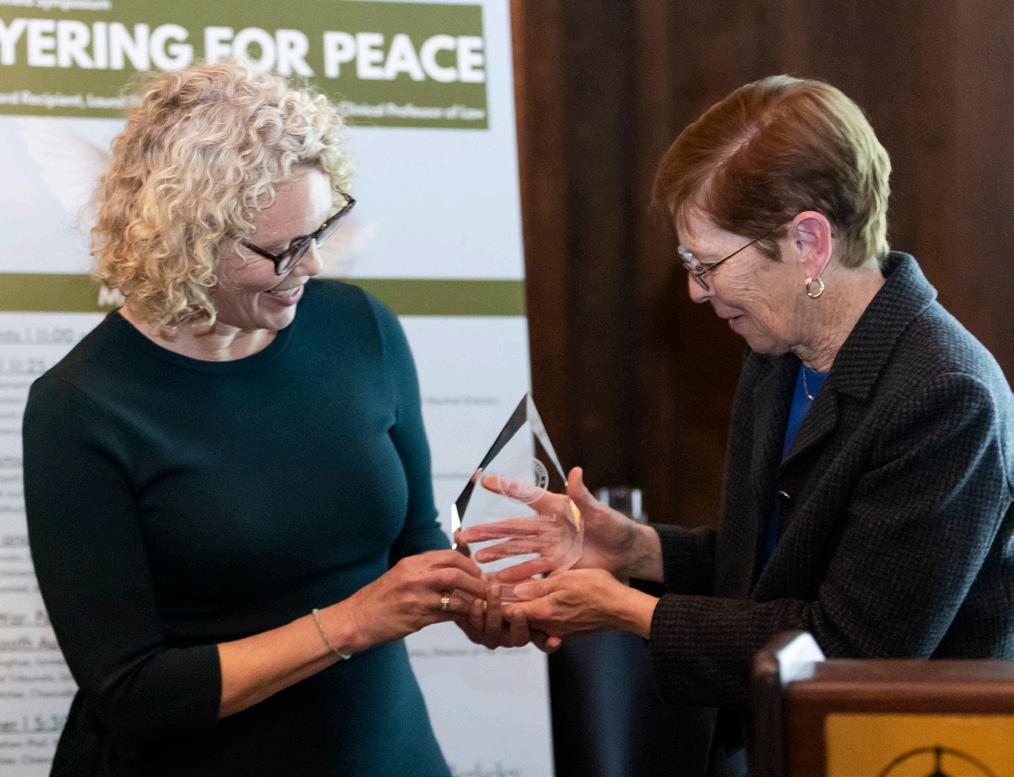
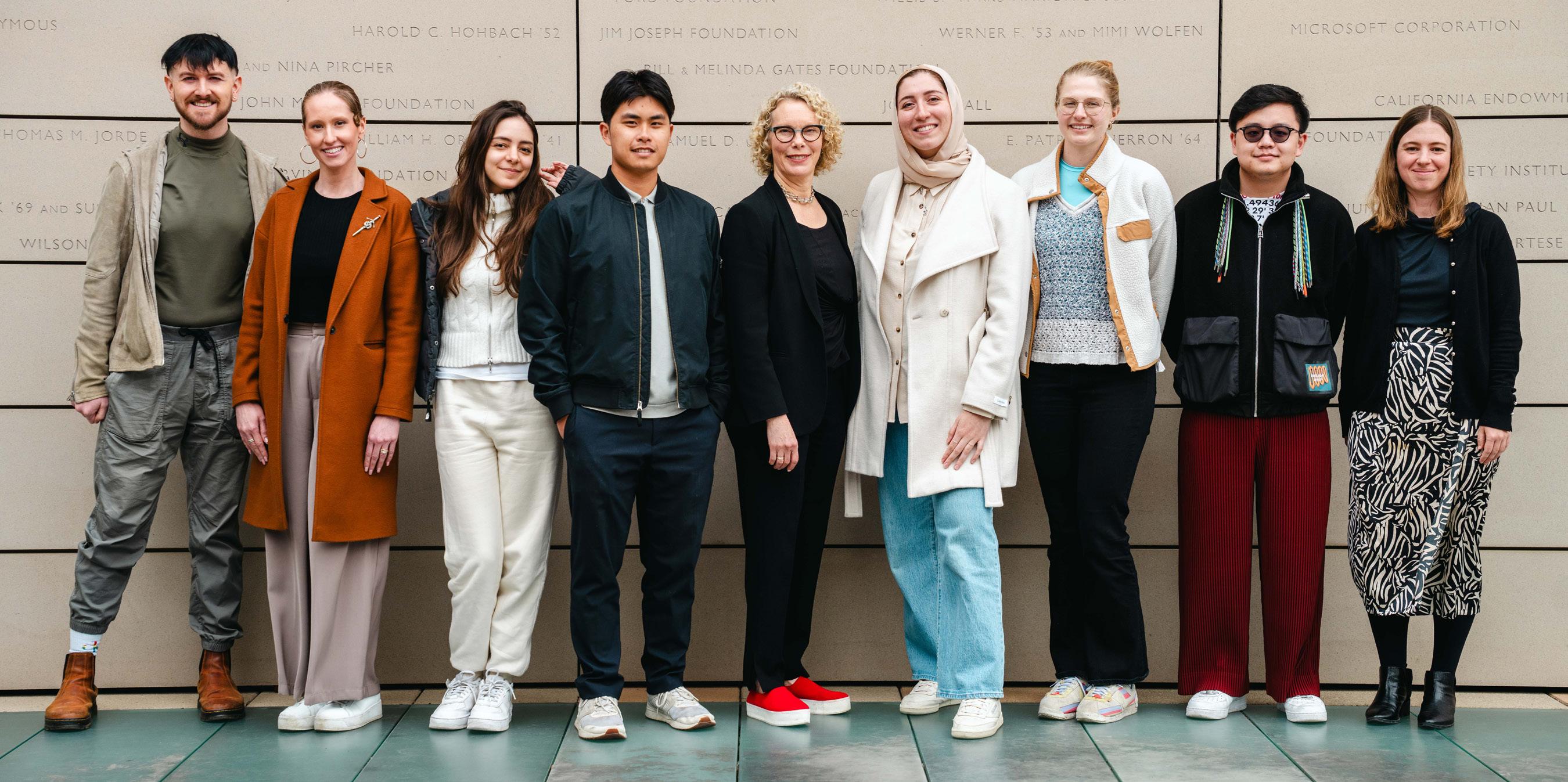
“GRIL is built to evolve. It is structured to listen to students and respond to new needs in the human rights and technology space. That approach keeps the clinic flexible and relevant, and it reflects the values many of us brought to the table when we helped design it.”
— GRIL student Steven P. Hensley '25
“To me this was a very personal issue. I am so grateful to do work that matters to me and directly impacts my community.”
— Human Rights Clinic student Maria Magdalena Watson ’25
Watson
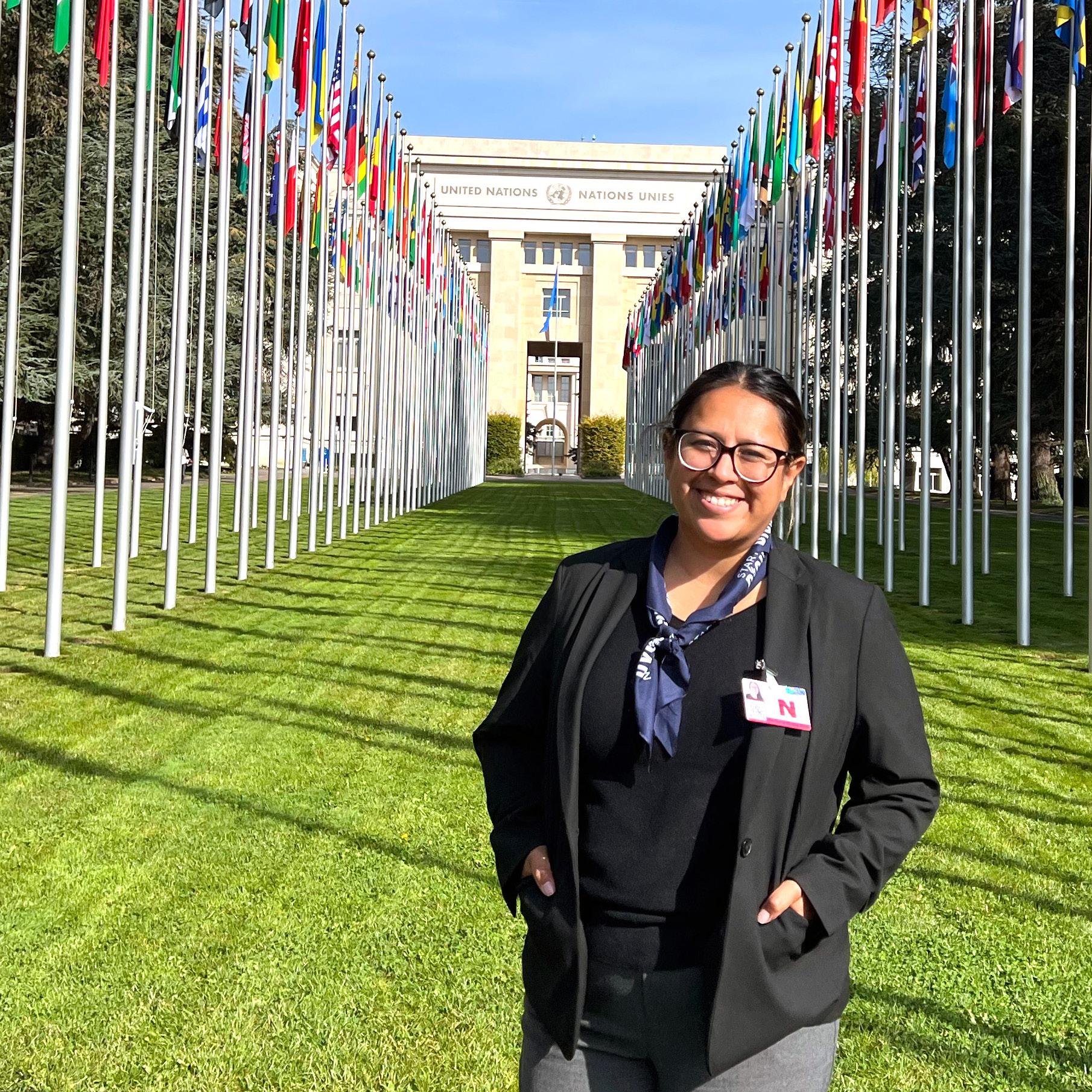
“Maria stood shoulder to shoulder with victims of excessive use of force on our southern border, to help us put that issue on the international agenda. It was a beautiful arc of justice.”
— Human Rights Clinic Director Roxanna Altholz
For more than 25 years, the Human Rights Clinic has advanced human rights at home and abroad through litigation, documentation, evidence-based policy work, and clientcentered advocacy.
Today, teams of faculty and students work shoulder to shoulder with grassroots organizations, clients, and advocates to hold perpetrators of mass atrocities and environmental crime to account; defend civic space from overbroad counter-terrorism and national-security measures; confront climate-driven displacement and protect the rights of people on the move; secure land and resource rights for Indigenous and other threatened communities; and bring international human rights standards home to domestic struggles over policing, immigration, reproductive freedom, and more.
The clinic strives to meet the urgency of this moment while staying true to the collaborative, client-centered approach that has defined its work for decades.
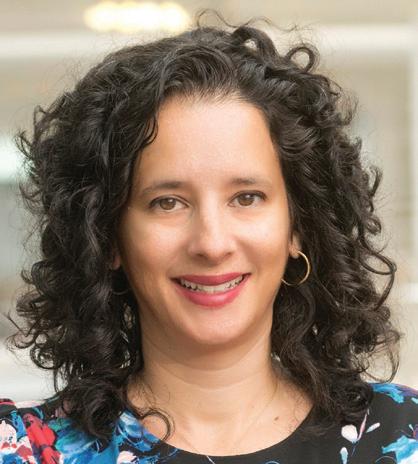
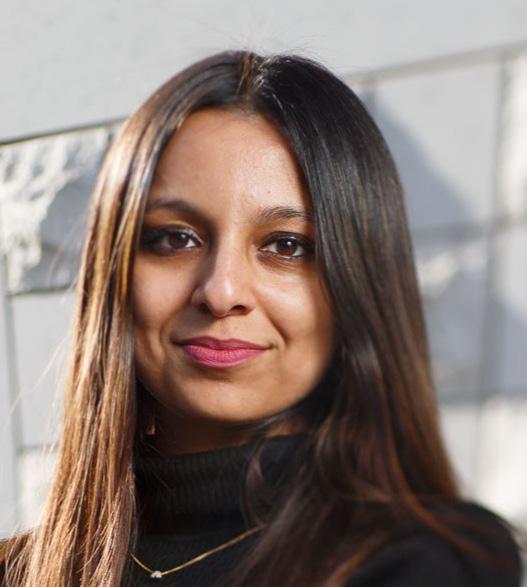
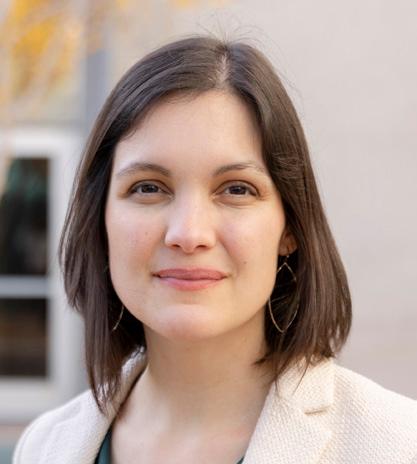
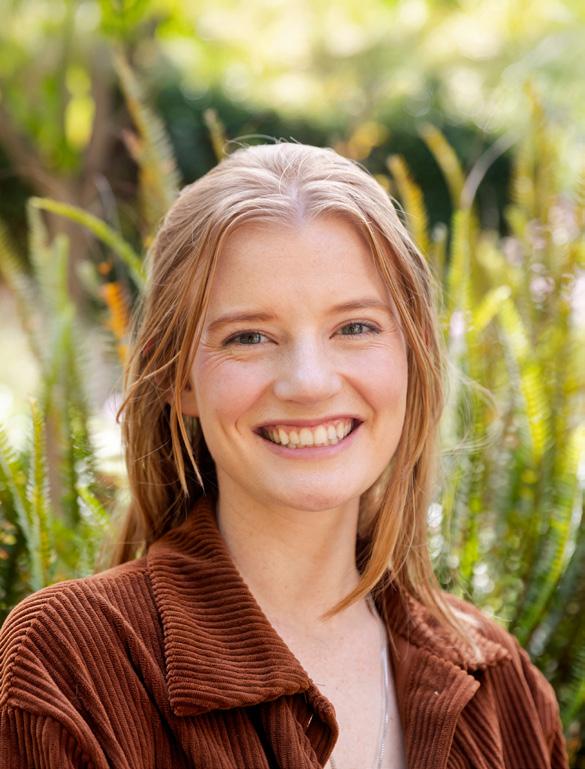
“It has been both challenging and rewarding to learn how to work with legal doctrine in a way that expands or reimagines it for new contexts.
This kind of creative thinking seems to be highly important in law practice, but is not stressed in law school. I have appreciated the opportunity to develop it here.” — Human Rights Clinic student Sarah O’Farrell '25
Each year, tens of thousands of travelers, including many asylum seekers, are refused entry at Mexico’s airports. Last fall, a clinic team led by Clinical Supervising Attorney Helen Kerwin filed an amicus brief to the Mexican Supreme Court in the case of one Venezuelan asylum seeker who was refused entry, held incommunicado inside the airport, and later detained. The brief, presented on behalf of several former U.N.-mandated independent experts on the rights of migrants, asks the court to uphold Mexico’s human rights treaty obligations — which have the same legal status as the Mexican Constitution — to ensure access to asylum proceedings at borders.
“A
Transparency Deficit and an Equity Deficit: The Need to Reform the UN Security Council’s Sanctions Committees”
In January 2025, Clinical Supervising Attorney Radhika Kapoor wrote an article for the Max Planck Yearbook of United Nations Law, spotlighting the lack of transparency, fairness, and accountability in current sanctions regimes and their human rights and economic implications, particularly for states in the Global South.
Throughout the year, Human Rights Clinic faculty contributed to conversations about advocacy, scholarship, and teaching. Some highlights include:
In February, Clinical Supervising Attorney Radhika Kapoor presented her paper “A Climate of Harm: International Law, Propaganda, and Genocide” at the Northern California Clinical Conference.
In March, the clinic launched a Virtual Salon Series, convening alumni Andrea Guerrero ’99, Gina Amato Lough ’01, Kennji Kizuka ’15, and Mary Ghandour ’18 for a discussion on migrant rights in the United States.
In May, Clinical Supervising Attorney Helen Kerwin delivered a keynote presentation at the Mexican Capital Legal Assistance Program’s annual meeting, examining how U.S. death penalty lawyers can creatively use the Inter-American Commission on Human Rights to advocate for their clients.
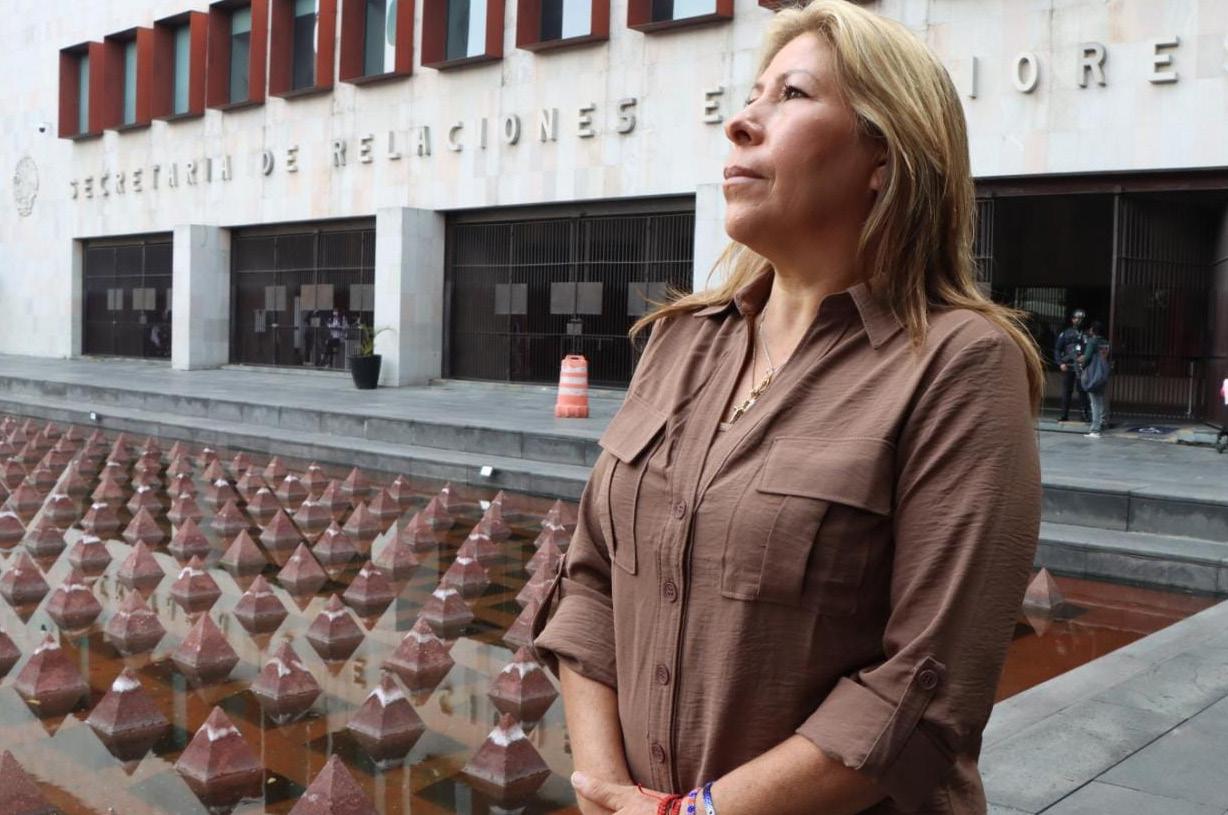
This year, the Inter-American Commission on Human Rights issued a historic ruling in the killing of Anastasio Hernández Rojas — a case litigated by the Human Rights Clinic in partnership with Alliance San Diego. It found that U.S. border agents tortured Hernández Rojas, used excessive force while he was fully restrained, discriminated against him, and then blocked a proper investigation. The Commission also condemned the cornerstone of U.S. law on use of force — the “objectively reasonable” standard as incompatible with international law and instructed the United States to reopen the criminal investigation and enact sweeping reforms. This decision is the result of a decade of tenacious work by community members, lawyers, activists, and clinic students and the courage and determination of Hernández Rojas’s family.
"The clinic was pivotal to our pursuit of justice for the family of Anastasio Hernández Rojas. Just when we thought all doors had closed, Professor Altholz and her students opened the door to — and our awareness of — international human rights mechanisms. With their steadfast help, we were able to challenge the largest law enforcement agency in the country in an international forum and win a landmark decision before the Inter-American Human Rights Commission. The decision will reverberate for generations to come and the successful work of the clinic is already illuminating the path for other advocates." — Alliance San Diego Executive Director Andrea Guerrero ’99
This fall, clinic students supervised by Professor Roxanna Altholz and Clinical Supervising Attorney Radhika Kapoor supported the U.N. Working Group on Enforced or Involuntary Disappearances (WGEID) in researching and drafting a groundbreaking new report on disappearances perpetrated against land, natural resource, and environmental defenders. Students worked closely with Ana Lorena Delgadillo Pérez, the report’s lead author, a member of WGIED, and a leading Mexican human rights lawyer with decades of experience advocating for migrants’ rights, accountability in cases of disappearance, and citizen security. The clinic also co-organized an event at the 16th Conference of the State Parties to the Convention on Biological Diversity in Cali, Colombia, to gather critical insights from affected communities, campesinos, and Indigenous Peoples.
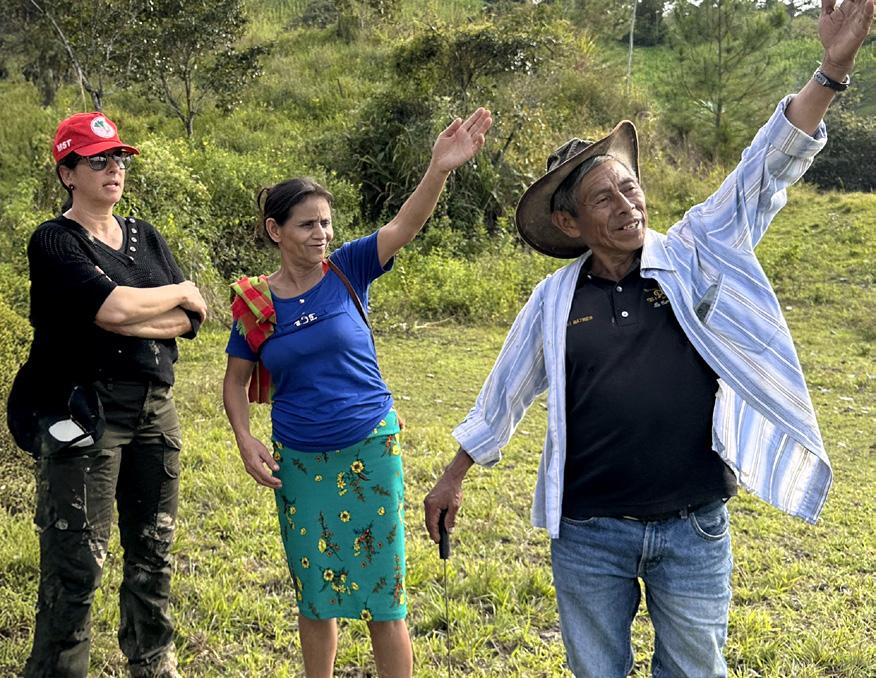
This spring, Human Rights Clinic Director Roxanna Altholz was named to a panel of three independent experts appointed by the Inter-American Commission on Human Rights to investigate the 2016 killing of Honduran human rights defender Berta Cáceres and propose a reparations plan. Cáceres was murdered for her opposition, in solidarity with the rural Indigenous community of Río Blanco, to a hydroelectric dam project. The expert panel, known as “GIEI” in its Spanish acronym, is investigating who ordered and financed Cáceres’s murder and related crimes. Under the direction of Altholz and Clinical Supervising Attorney Helen Kerwin, clinic students are supporting the GIEI’s efforts to address the structural injustices that enabled the killing: the dam concession remains in place, the company and its financial backers have not been held accountable, and the Indigenous communities that opposed the project still lack legal recognition of their collective land rights.
Human Rights Clinic Clinical Supervising Attorney Radhika Kapoor led several projects advocating for the compliance of counterterrorism frameworks with international human rights standards.
In the fall semester, students analyzed a repressive counterterrorism legislation in a Global South state that granted excessive powers to the military, finding that the legislation ran counter to the state’s human rights obligations regarding the right to life, the use of force, and access to effective remedies.
In spring, students supported a civil society coalition in defending nongovernmental organizations from adverse impacts due to counterterrorism and national security policies, such as loss of official nonprofit status and reputational damage from being labeled “extremist” or “terrorist.” They traveled to Washington, D.C., to convene a multi-stakeholder conference and present their research. Another team examined the growing role of private actors — such as banks and technology companies — in global counterterrorism efforts and identified potential human rights concerns arising from their involvement.
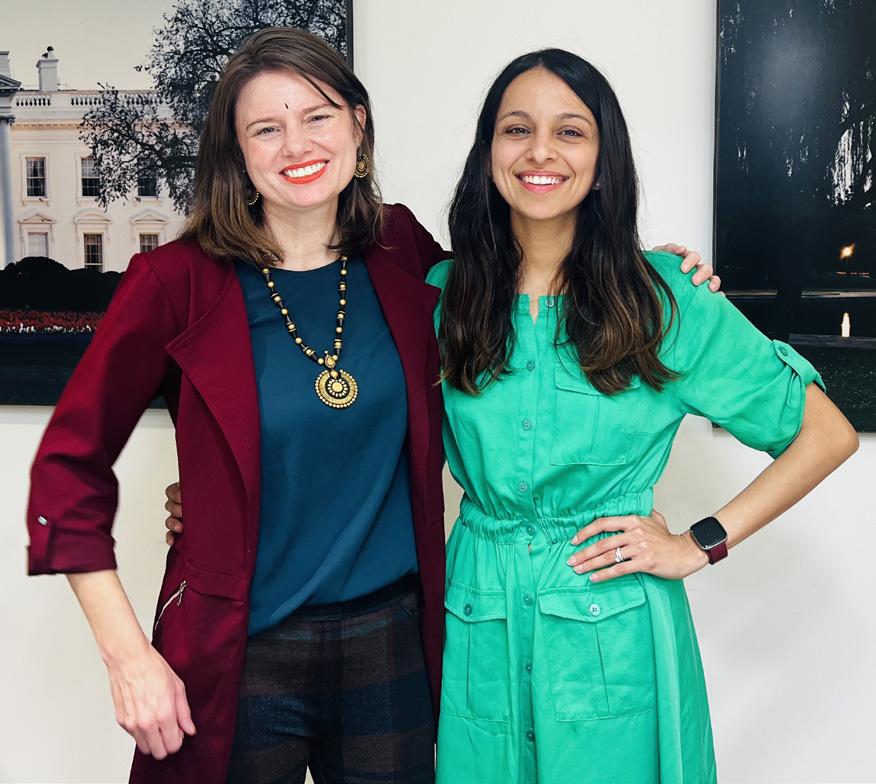
The Policy Advocacy Clinic is the nation’s premier interdisciplinary clinic where law and public policy students team up to represent clients taking on systemic racial and economic injustice. The clinic’s approach is ground-up (rooted in the lives of impacted people), problem-based (addressing pressing social issues), and community-driven (accountable to local organizations). Students provide technical legal and policy support to state and national campaigns to reform the juvenile and criminal legal systems while exploring the potential and limits of law and public policy to solve real-world problems.
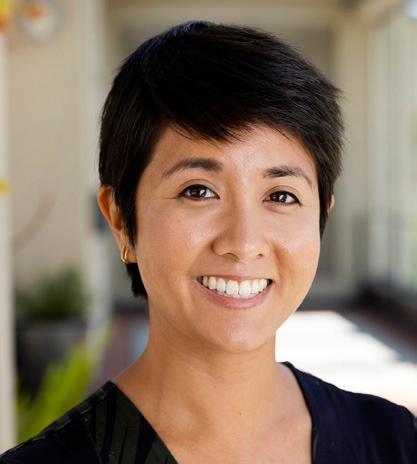
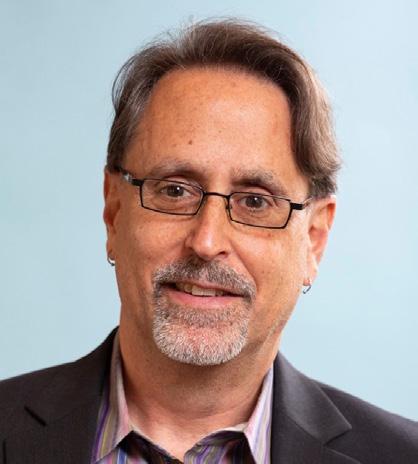
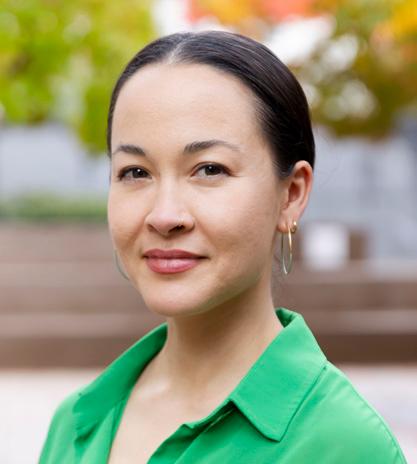
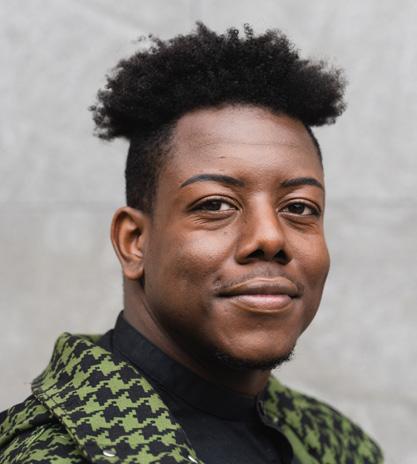
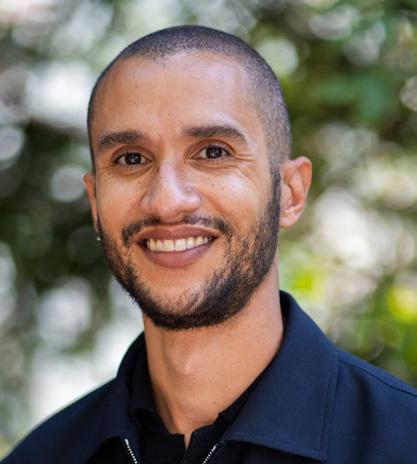


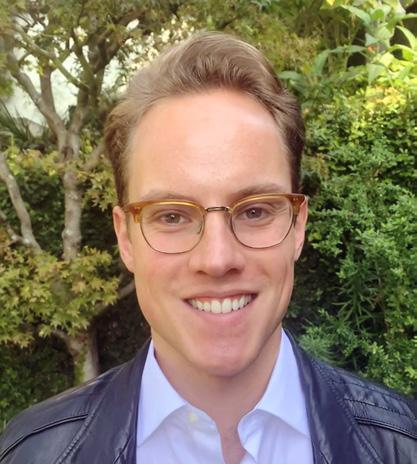
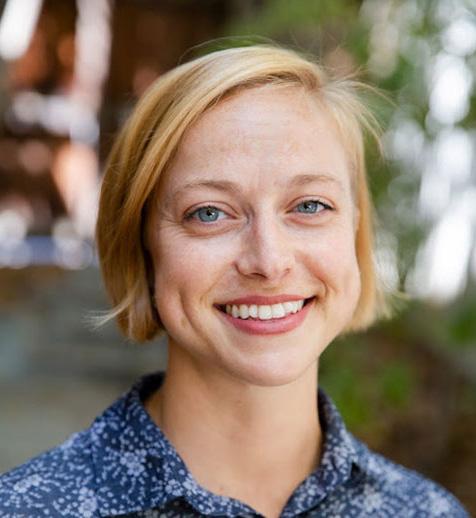
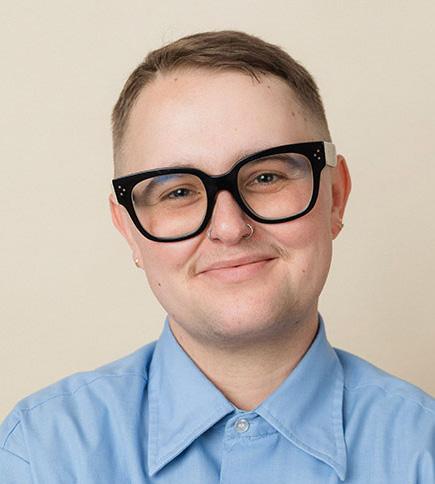
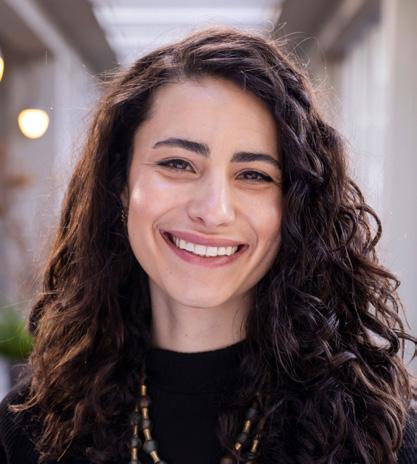
“The Policy Advocacy Clinic has defined my law school experience. With the support of my incredible supervisors — both mentors and role models — I worked alongside a coalition of community organizations to research and draft a bill to end prison medical fees in Colorado, and I testified twice in the state legislature in support of the bill.”
— Policy Advocacy Clinic 3L student Jacob Bendicksen
Faculty Spotlight
Three New Clinical Supervisors
TJ Grayson supported community groups with criminal legal campaigns and suits against police and a private ICE detention facility as a Civil Rights Fellow at the Social Justice Legal Foundation and worked with community organizers on campaigns to end police violence as a Justice Catalyst Fellow at the Advancement Project.
Samantha Lee was a public defender representing parents against child abuse and neglect cases before shifting to policy work to end pregnancy criminalization and to decouple health care from the criminal and family policing systems.
Asher Waite-Jones ’16 was a legal aid attorney in California and Indiana, where he provided direct representation to youth and adults fighting the criminalization of homelessness, fines and fees, driver’s license revocation, and vehicle tows.
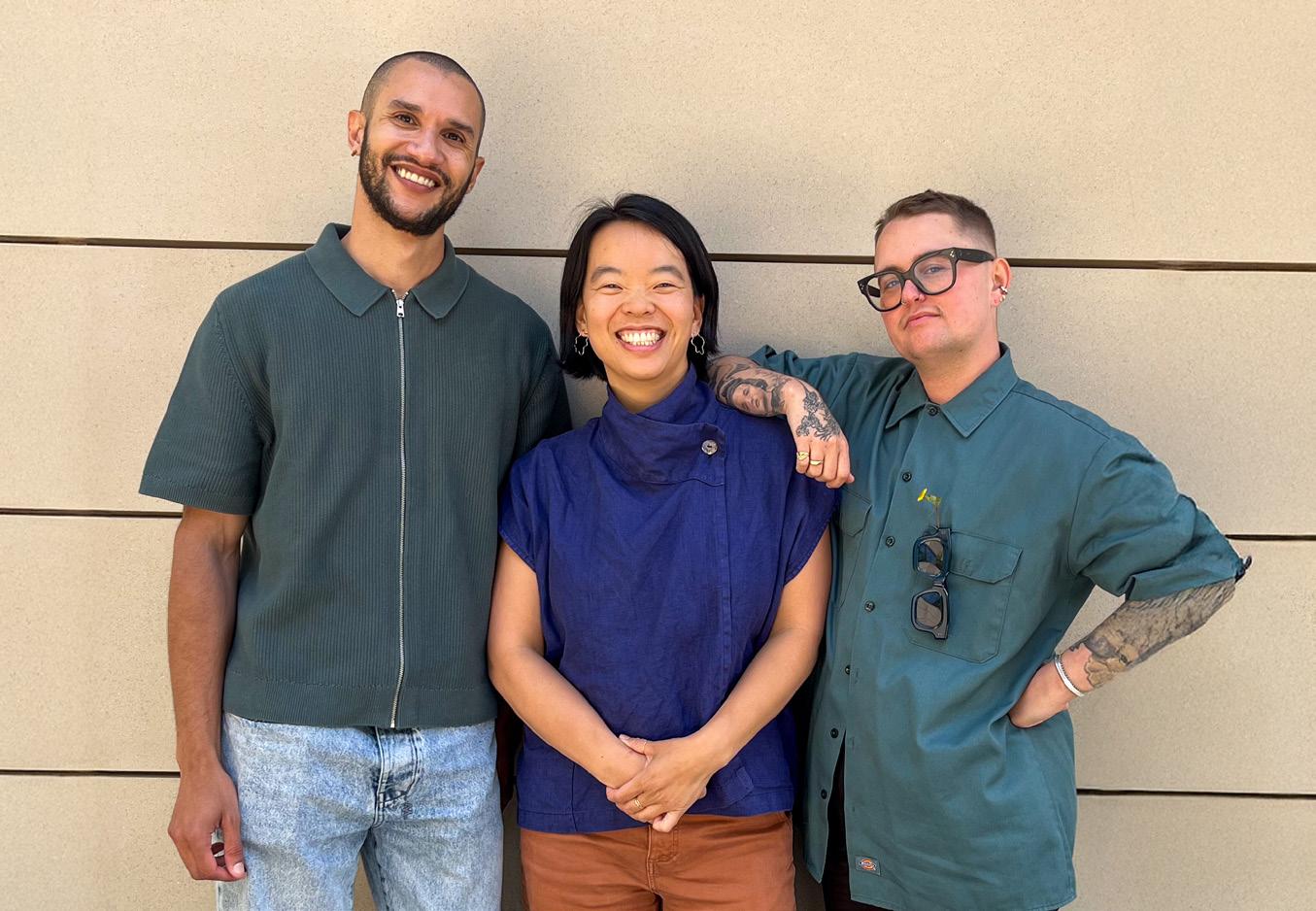
The Policy Advocacy Clinic launched a new clinic for 12 first-year law and public policy students — co-led by students Euni Lee and Jacob Bendicksen — to provide legal assistance to the Vera Institute of Justice. The students conducted legal and social science research and drafted position statements and other advocacy resources to support Vera’s advocacy to defeat bills in the California Legislature that would deepen the harm of the criminal legal system, with a particular focus on bills addressing retail theft, diversion, and bail.
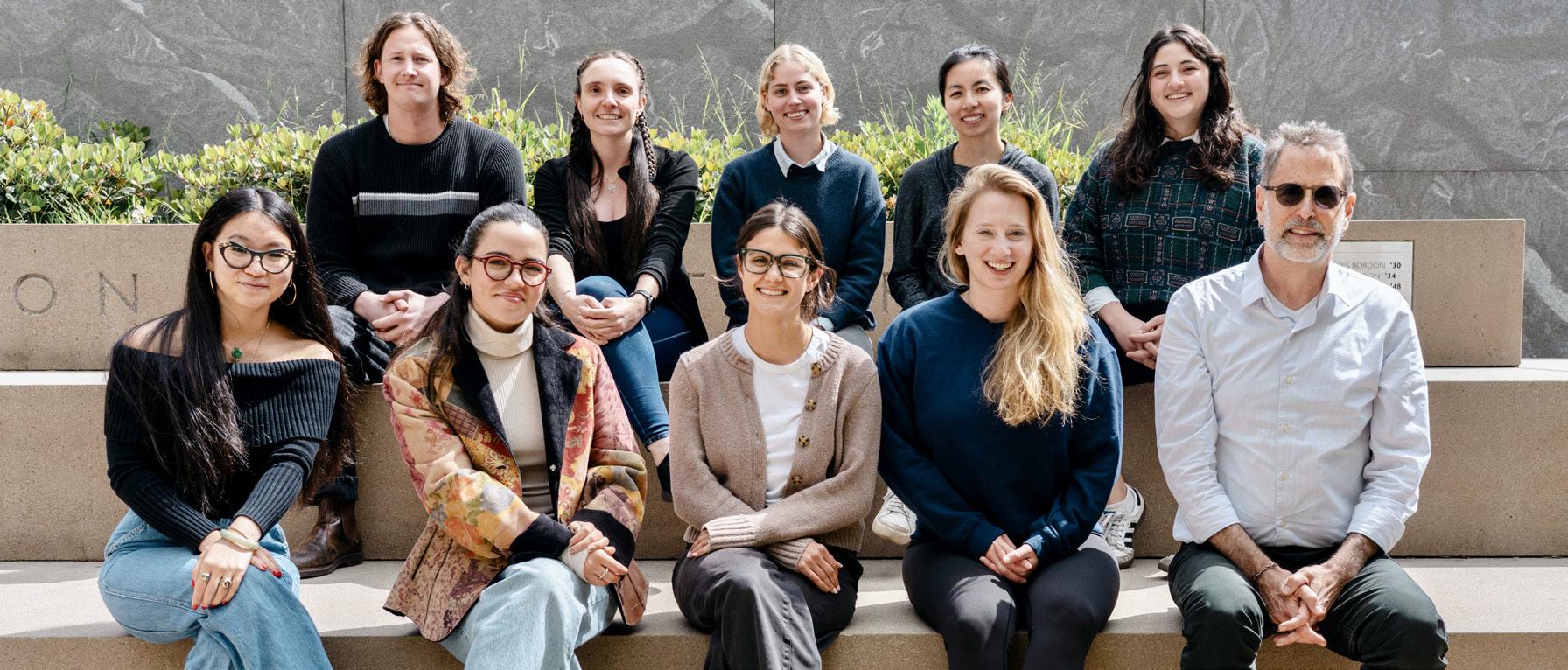
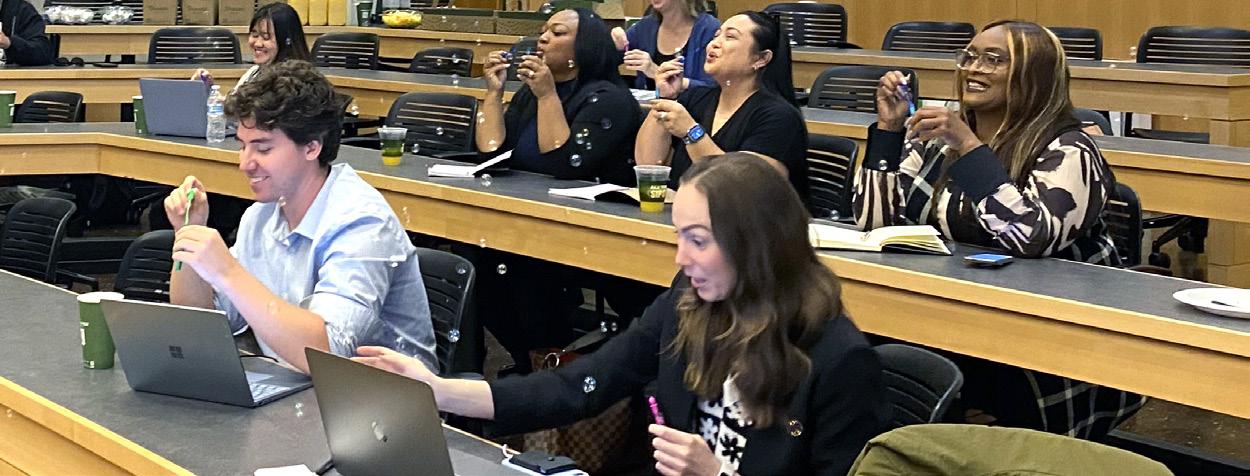


Policy Advocacy Clinic staff and students continued to represent Debt Free Justice California (DFJC) working to end monetary sanctions in state criminal courts. The coalition sponsored Assembly Bill 1186, which ended youth restitution fines prospectively and discharged outstanding restitution fine debt older than 10 years for hundreds of thousands of California youth and adults. Students provided foundational research on youth restitution and legal support to the bill sponsors, and the clinic will work on bill implementation and outcome evaluation over the next year.
The national Debt Free Justice campaign, co-coordinated by Policy Advocacy Clinic Clinical Supervisor Cameron D. Clark, brought together more than 50 partners from 15 states to discuss advocacy successes and challenges, shifts in youth and criminal justice priorities, and future directions for the campaign. We were thrilled that so many directly impacted young people joined the convening and provided key insights on campaign goals and strategies.
With multiyear funding from Arnold Ventures, the Policy Advocacy Clinic launched new work representing clients seeking to repeal monetary sanctions in the adult criminal legal system. Part of the national End Justice Fees campaign, students are supporting a broad range of legislative and policy efforts to end the regressive and racially discriminatory impacts of criminal system fees in states across the country, including Arizona, Colorado, Indiana, Louisiana, Minnesota, Oregon, and Washington.
Publication — Stephanie Campos-Bui, "Reform’s Oversight: The Limits of Youth Restitution," Columbia Law Review (Forthcoming 2025)
Dozens of state and local jurisdictions across the country and political spectrum have ended fines and fees in juvenile courts, but victim restitution is routinely left out of reform efforts. Courts order youth to pay restitution to harmed parties for economic injury on the theory that it promotes youth rehabilitation, deters harmful behavior, and makes harmed people whole. Analyzing public records from California counties, this article finds no evidence to support these rationales for youth restitution, and argues instead for policy reforms that better address harm and promote healing for both victims and the youth who harmed them.
Publication — Jeffrey Selbin, "Suicide by Cop? How Junk Science and Bad Law Undermine Accountability for Killings by Police," California Law Review (Forthcoming 2025)
“Suicide by cop” emerged in the 1980s as a shorthand for encounters in which people provoke a lethal response from law enforcement, for example, when they leave behind a note expressing their wish to die at the hands of police. Police and their advocates have subsequently developed suicide by cop into a malleable form of junk science that serves as a broad defense against liability. This article is the first to critique suicide by cop as a law enforcement theory that shifts the blame for excessive use of police force to victims, absolves police officers from accountability, and undermines civil rights.
The Samuelson Law, Technology & Public Policy Clinic trains the next generation of lawyers to advance the public interest in a digital age marked by rapid technological change. The clinic’s work focuses on three core areas: protecting civil liberties, promoting balanced intellectual property laws and access to information policies, and ensuring a fair criminal justice system. The clinic does this through strategic litigation opportunities, regulatory and legislative processes, and policy analysis.
The Samuelson Clinic will be celebrating 25 years in fall 2026 and everyone’s invited! Please keep an eye out for more information about the symposium and celebration. Be ready to save the date.
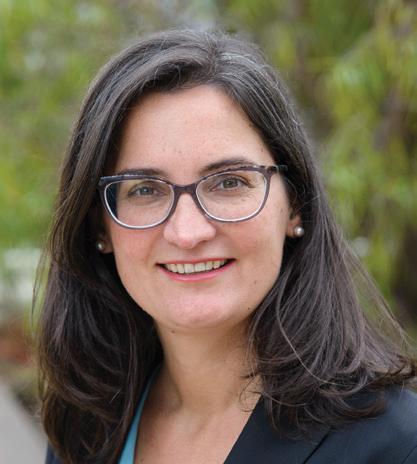
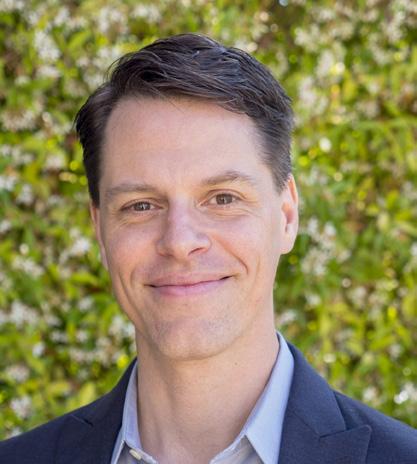
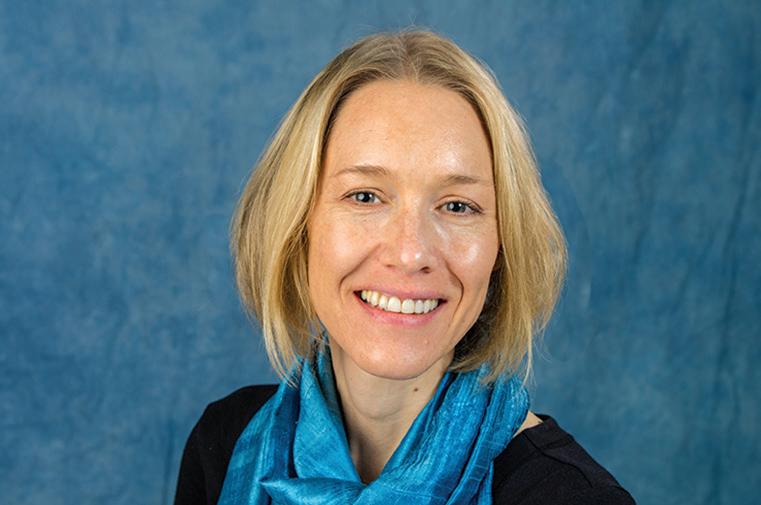
On behalf of Authors Alliance, the clinic successfully petitioned the Library of Congress to renew and expand exemptions to the Digital Millennium Copyright Act (DMCA) restrictions on breaking digital locks for digital humanities researchers who use text and data mining in their work. The petition won both renewal of the existing exemption and an expansion that allows researchers to: (1) provide access to their research corpora to scholars from outside their institutions, and (2) view the contents of copyrighted works as needed to conduct research. While this win doesn’t solve all of the access issues related to the DMCA, it underscores the societal and scholarly benefits of researchers’ work and supports the development of new knowledge in the digital humanities.
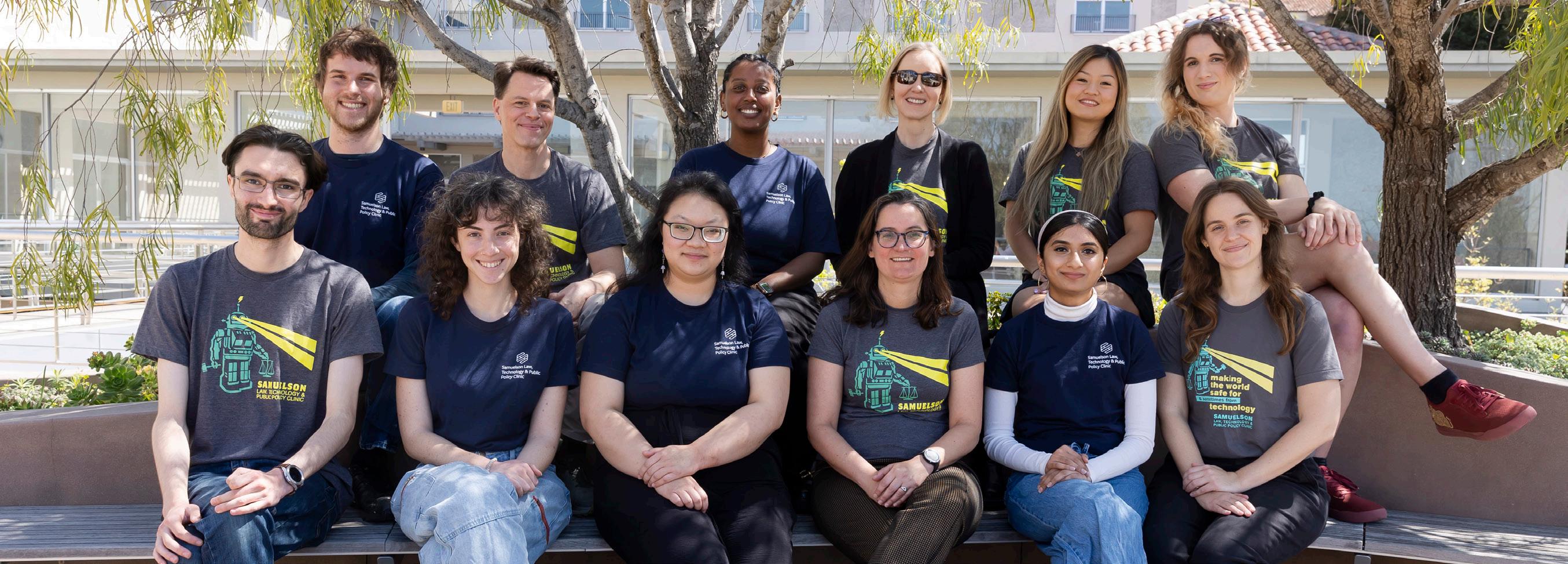
To understand how law enforcement agencies use digital evidence to investigate suspected criminal activity at mass events, clinic students examined federal use of digital evidence at protests of George Floyd’s murder. They looked at more than 100 warrant applications from federal law enforcement in Minneapolis-St. Paul following the murder of George Floyd in May 2020, and concluded that digital evidence is commonly used in investigations of suspected criminal activity at mass events. The white paper demonstrates that warrant materials play a valuable role in explaining law enforcement and court actions, underscoring the importance of docket transparency.
Representing the United Church of Christ Media Justice Ministry, students intervened in litigation in five federal circuits to defend an order of the Federal Communication Commission that caps rates providers may charge incarcerated people and their loved ones for communications services. Students helped draft an intervenors’ brief explaining the role affordable communications services play in reducing recidivism, increasing well-being and safety within carceral facilities, and supporting the communities that incarcerated people come from and to which they hope to return.
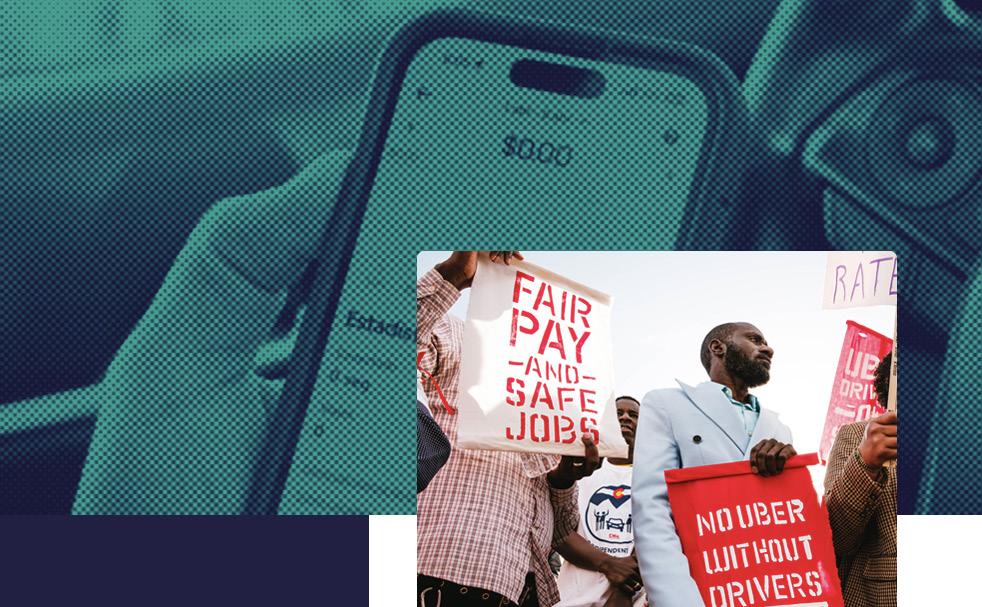
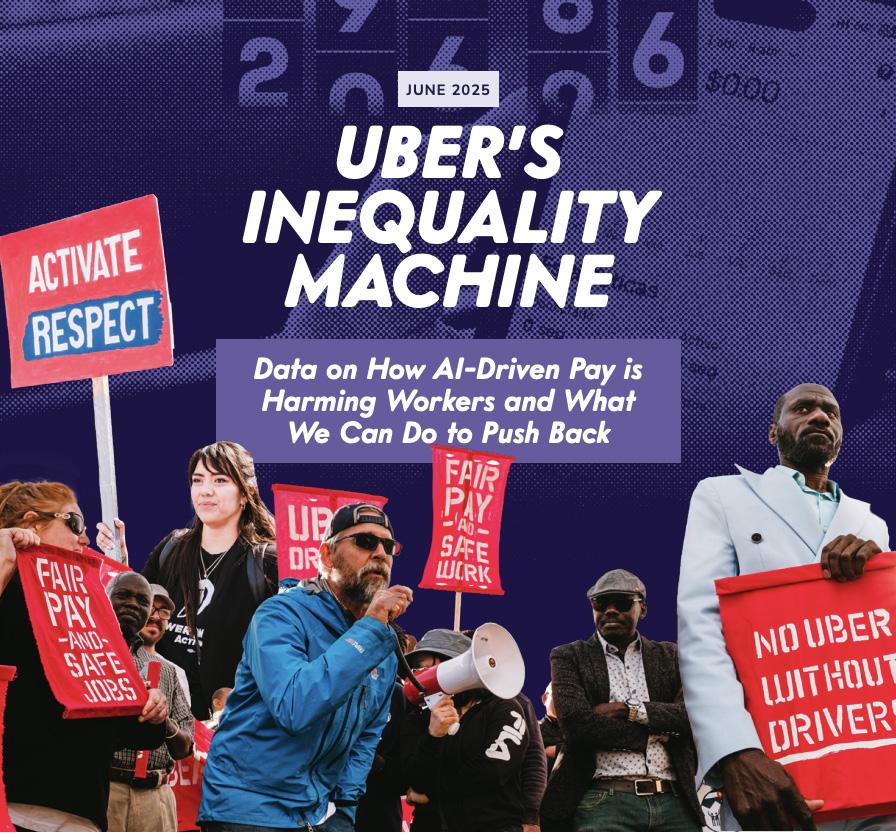
Students contributed to a report published by PowerSwitch Action documenting the harmful effects of algorithmic wage discrimination on gig workers and the disproportionate harms to low-income workers and workers of color who depend on these platforms for their livelihoods.
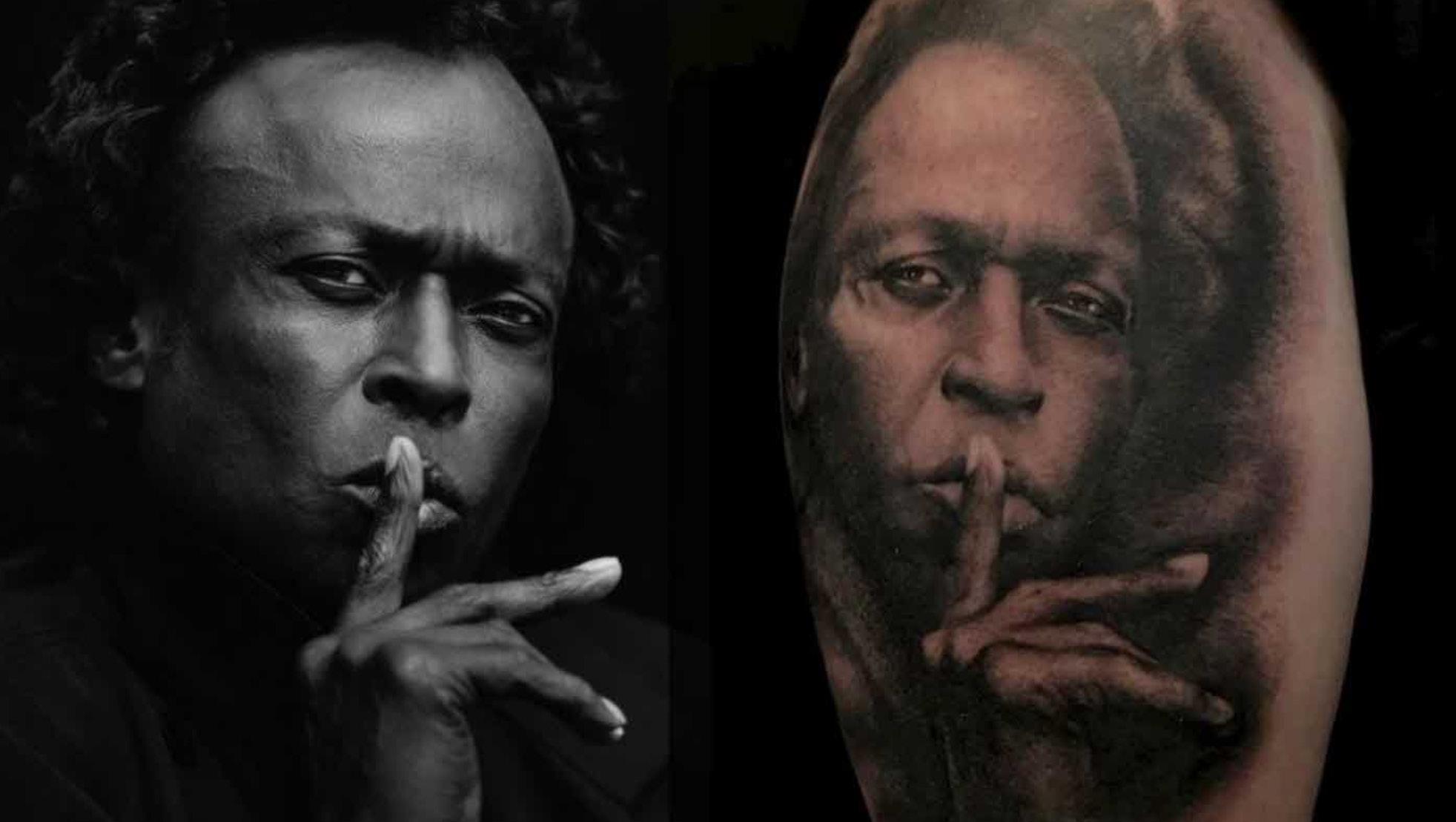
In Sedlik v. Von Drachenberg, a social media post displaying a wellknown tattoo artist inking a tattoo based on a famous photograph of Miles Davis has raised new questions about fair use in the wake of recent Supreme Court decisions. The clinic filed a brief offering a taxonomy of fair use justifications and explaining the jury’s role in deciding fair use cases.
“During two semesters in the Samuelson Clinic, I worked on projects that supported tech policy causes I care about while developing practical lawyering skills and habits. Clinic experience is a must for students interested in litigation or advocacy in general — it is the best opportunity in law school to practice client service, problem solving, and teamwork skills.”
— Samuelson Law, Technology & Public Policy Clinic student Ashley Fan ’25


Since graduating from UC Berkeley Law, Samantha (“Sam”) Hamilton ’20 has continued working in the areas of First Amendment, media law, and civil rights that she began in the Samuelson Clinic. Hamilton has worked with the University of Georgia School of Law First Amendment Clinic, civil rights firm Loevy & Loevy, the New York Times Media Law & Litigation Department, and is now at Asian Americans Advancing Justice – Atlanta as an impact litigation staff attorney. In June 2025, she helped secure a victory in a public records trial against the Atlanta Police Foundation, obtaining access to records related to the Atlanta Public Safety Training Center, or Cop City, in the first known case holding that records of a private police foundation are subject to the public right of access.
Alum Nicole Ozer ’03 was recognized with the Fearless Advocate Award from the American Constitution Society’s Bay Area Chapter and also received a California Senate resolution commending her unwavering dedication to defending and promoting civil liberties in the digital world, invaluable contributions to people throughout California, and meritorious service to humanity. The founding technology and civil liberties director for the ACLU in California, Ozer has been a trailblazer in public interest technology, leading the passage of the landmark California Electronic Communications Privacy Act and Reader Privacy Act, developing the ACLU’s national online privacy campaign, and designing groundbreaking local surveillance reform strategies now used across the nation.
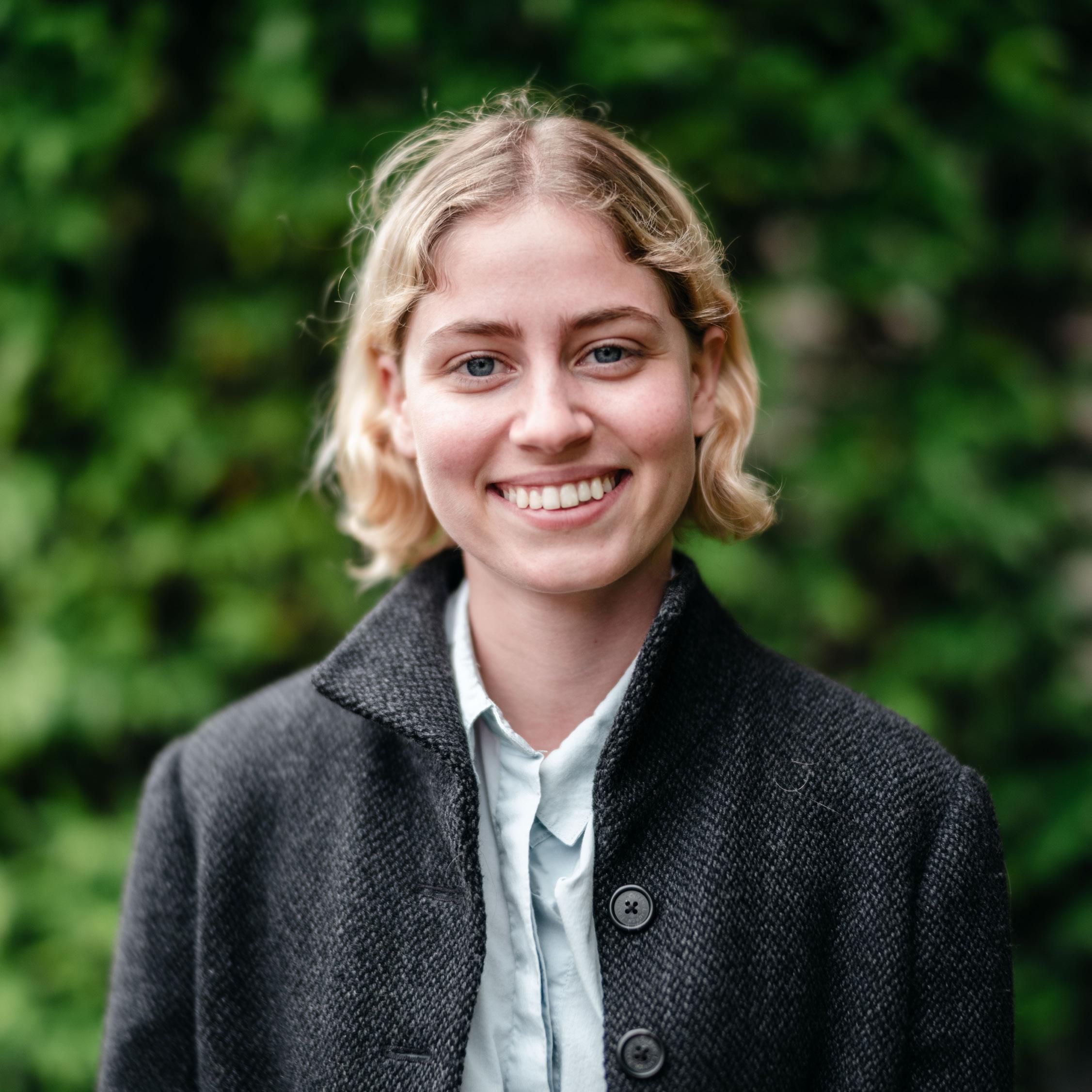
“The Policy Advocacy Clinic reshaped my sense of what a legal education could look like, introducing me to perspectives and challenges I wouldn’t have encountered otherwise in my 1L year.”
— Policy Advocacy Clinic 2L student Claire Elliman
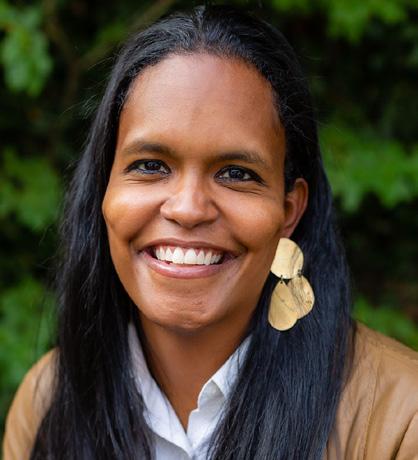
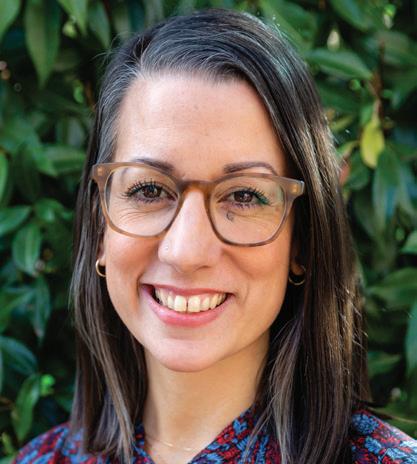
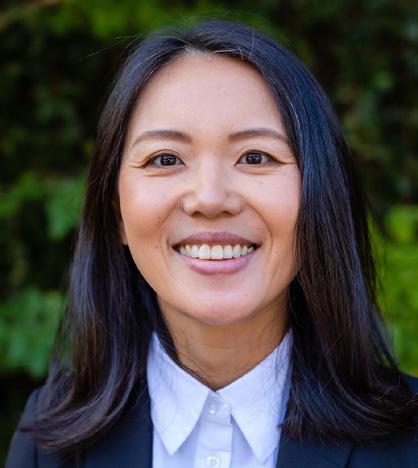
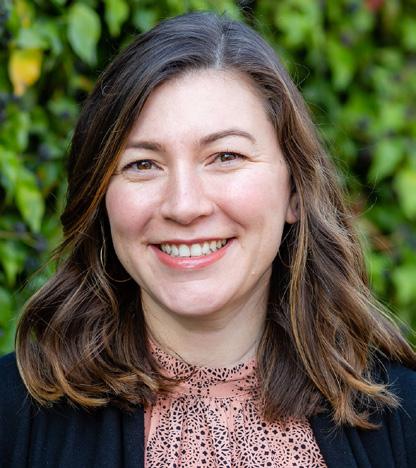
The East Bay Community Law Center (EBCLC) houses UC Berkeley Law’s eight communitybased clinics, which serve thousands of clients annually in the surrounding community. For more than three decades, UC Berkeley Law students have advanced vital legal support and policy advocacy at EBCLC — Alameda County’s largest provider of free, holistic legal services. The center teaches critical, practical, and hands-on lawyering skills, while fighting for racial justice and reflecting on the lawyer’s role and the lawyering process.
This year, EBCLC staff and clinic students helped achieve the following victories:
5,224
Critical legal services provided including brief services, limited scope, and full representation
$1.5M 644
Combined impact of public benefit increases, rent arrears waivers, and consumer debt relief
Immigration applications filed for DACA renewals and other relief
The Clean Slate Clinic provides legal services at the intersection of criminal, employment, and consumer law, representing clients on post-conviction recordrelief petitions in criminal court and engaging in local and statewide criminal justice reform, particularly as it relates to court debt and the criminalization of homelessness. Law students file petitions in criminal court, conduct intake at weekly courthouse clinics, write declarations and briefs, and represent clients in administrative hearings and superior court.
This year, the Clean Slate Clinic assisted hundreds of clients by assessing available remedies and reducing the impact of their conviction and arrest records through petition-based relief. Through its work anchoring the Debt Free Justice California coalition, the Clean Slate Clinic successfully championed the passage of Assembly Bill 1186, known as the REPAIR Act. The act eliminates youth restitution fines, which disproportionately saddle young people of color and their families with unfair criminal legal debt.
24,000
Calls fielded from community members seeking EBCLC's help
100
Clients assisted with holistic services by the social work team
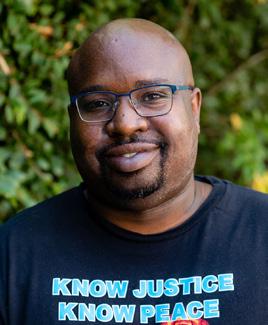
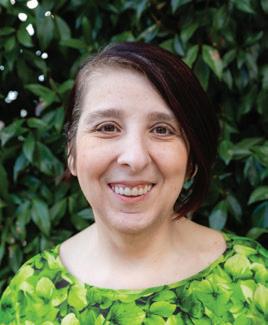
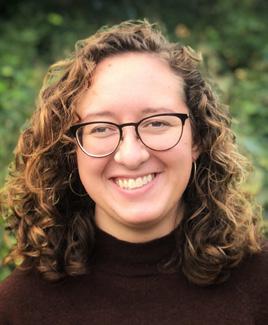
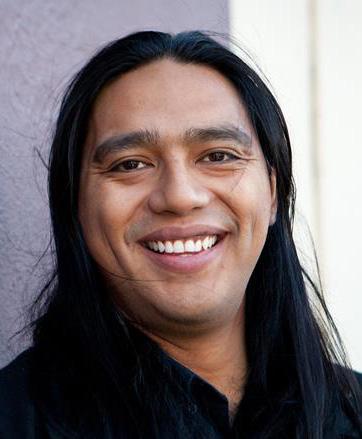
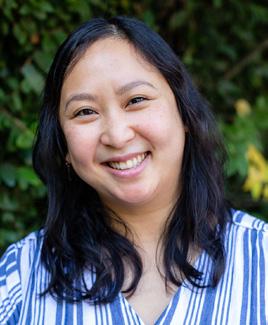
The Community Economic Justice Clinic uses corporate law to provide technical assistance to organizers in building community resources such as land trusts, cooperatives, and credit unions. Students engage in “movement lawyering” strategies, including community legal workshops, client counseling, and direct representation to advance peopleoriented economic development and empower low-income communities of color to build long-term solutions to poverty.
In one example of providing valuable legal technical assistance and system navigation, the Community Economic Justice Clinic assisted tenants of a South Berkeley building after learning that their landlord had passed away and that the property was going to be put up for sale. The clinic advised the client on the probate process, connected the residents to the Bay Area Community Land Trust, and supported the residents’ advocacy to get the Berkeley City Council to increase funding allocation to the Berkeley Small Sites Program. The financing from the city enabled the residents to ultimately buy the property and preserve their housing, which will become a co-op owned by the residents on site.
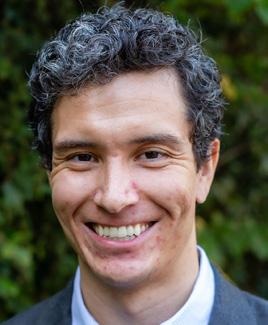
The Consumer Justice Clinic provides assistance and representation to low-income Alameda County residents on a variety of consumer issues, including debt-collection defense, student loans, car fraud, predatory lending, and consumer scams. Students engage in a full range of litigation practice, including drafting motions, representing clients in court, and negotiating settlements. Students also support the clinic’s pursuit of state policy initiatives that address the most significant challenges faced by low-income consumers.
Students of the Consumer Justice Clinic worked hard to successfully address some of the most significant challenges faced by low-income consumers this year. One example is a lawsuit that clinic students helped a client bring against Comerica Bank, focusing on contracts between the U.S. Treasury and Direct Express, and Comerica’s Bank’s failure to protect low-income cardholders from fraudulent withdrawals of funds from its prepaid cards. These prepaid cards are the sole method for unbanked consumers to receive certain government benefits, including Social Security benefits. After EBCLC’s filing, the federal Consumer Financial Protection Bureau announced a very similar lawsuit against the defendant for the same violations, seeking injunctive relief.
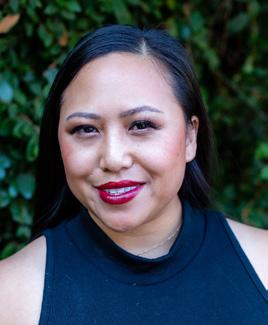
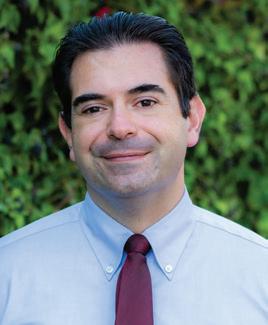
The Education Justice Clinic and the Youth Defender Clinic work together to fight back against the criminalization of youth of color, so that they can thrive in their communities and get the education they deserve. The clinics collaborate to provide holistic representation to youth in the juvenile legal system. Law students represent clients in juvenile court, special education (IEP) proceedings, and at expulsion hearings. Students also participate in policy advocacy to disrupt the school-to-prison pipeline and youth carceral system.
In one case of significant impact, the Youth Defender Clinic persuaded an Alameda County Juvenile Court judge that the client was entitled to retroactive application of a new law, Assembly Bill 1186, to the client’s past restitution order. The judge’s order reduced the client’s liability for restitution payments by over $30,000. The clinic’s memorandum to the court is now being shared with youth defenders statewide to assist in seeking similar relief for other youth clients with preexisting restitution orders.
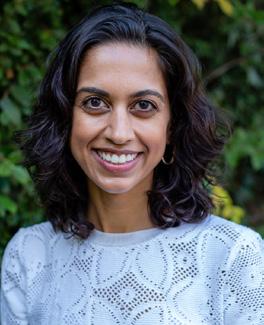
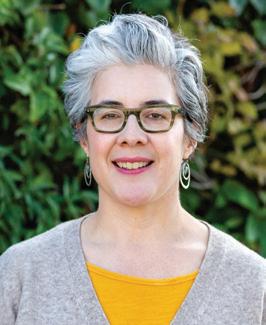
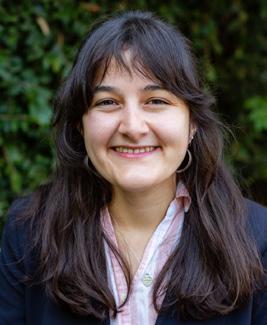
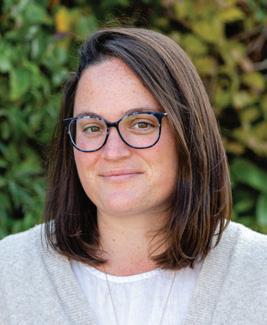
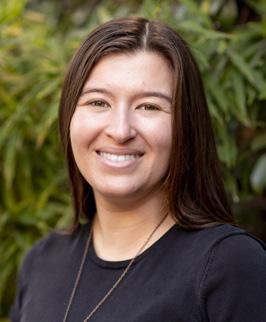


The Health and Welfare Clinic provides critical legal services to individuals at risk of poor health outcomes due to poverty, unsafe housing conditions, homelessness, and/or inadequate health coverage. Through medical-legal partnerships with local providers, law students work to provide stability for their clients. Students represent clients at administrative hearings involving the denial of disability-related benefits and provide limited-scope representation regarding public benefits issues.
The Health and Welfare Clinic students had a remarkable year carrying out its commitment to serving folks of color, women, members of the LGBTQ+, HIVpositive, and other communities in the public benefits arena and providing interventions necessary to ensure access to eligible benefits, including appeals and hearing representation for denials and terminations of public and disability benefits. As a result of the clinic’s legal services, public benefits clients increased their monthly income by 50% on average.
The Housing Clinic is a high-volume litigation practice designed to protect and promote safe, healthy, and affordable housing for low-income tenants through eviction defense and affirmative litigation to compel landlords to maintain their rental properties in a habitable condition. Students engage in a full range of litigation procedures while representing tenants in civil eviction proceedings and in administrative matters under local rent control ordinances.
The Housing Clinic had another extraordinary year defending tenants from evictions and enforcing tenants’ rights. In one example, a Housing Clinic student wrote a successful motion for summary judgment for an elderly Latina client, who had lived in the same rent-controlled apartment in Oakland for 20 years and was a model tenant. After a landlord attempted an “owner move-in” eviction, EBCLC represented the tenant across five separate cases. Ultimately, the court granted the client's motion for summary judgment, ruling that she was protected from eviction due to her age and length of tenancy.
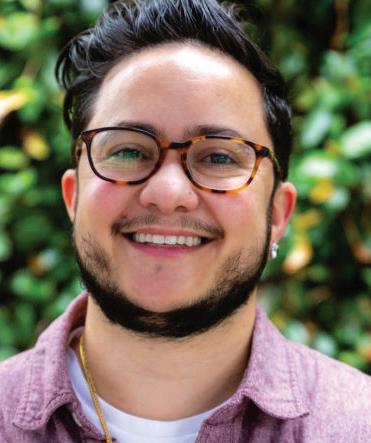
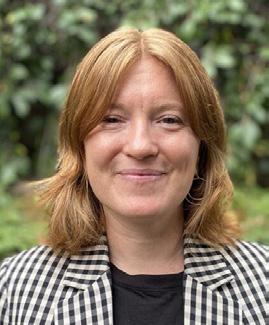
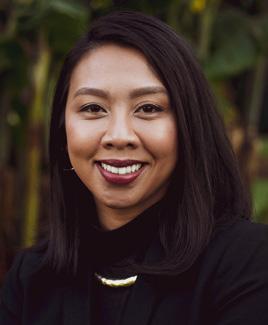
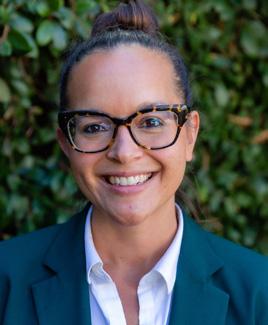
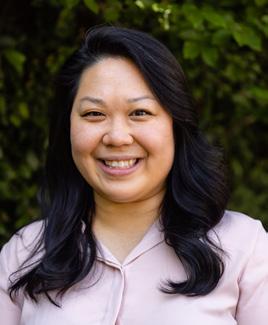
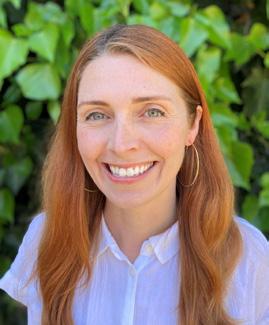
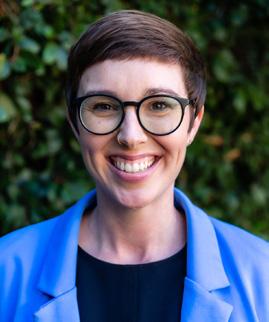
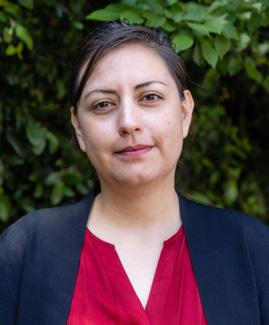

The Immigration Law Clinic provides legal services to low-income individuals focusing on the most vulnerable populations — people with disabilities and chronic illness, members of the LGBTQ+ community, and youth. The clinic has formal school-based partnerships providing legal services to immigrant students in the Oakland Unified School District, community colleges, and UC Berkeley. The clinic prioritizes complex cases including those involving criminal issues. Students carry their own client caseload and experience the full range of client representation through assessing legal relief in initial consultations and providing direct legal representation in immigration court and before other government tribunals.
The Immigration Clinic remains at the forefront of providing holistic, high-quality legal assistance and was selected for a two-year, statewide initiative — the Children’s Holistic Immigration Representation Project. Through this innovative program, the clinic was able to pair each youth immigration client with both an attorney and a social worker, offering not only legal representation but also trauma-informed care and stabilizing services that reinforce their legal cases. Over two years, the clinic has provided fully integrated social and legal services to 30 unaccompanied minors in the East Bay.

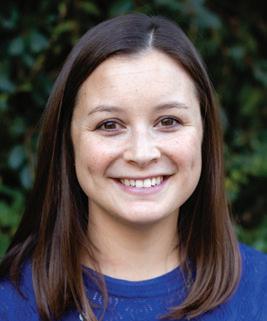
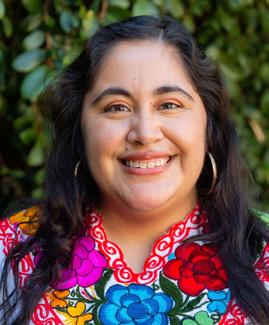
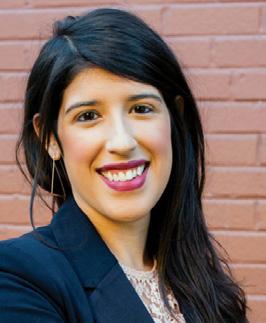
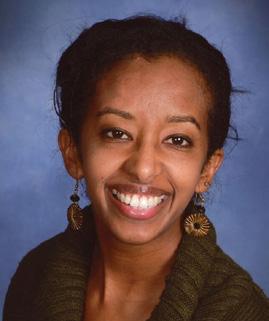

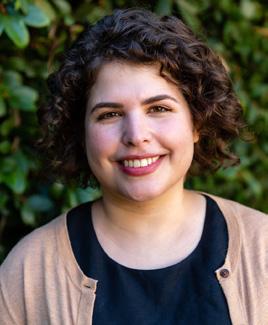
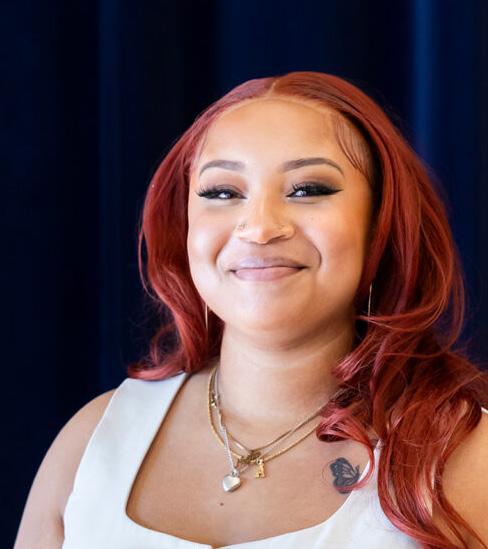
A transformative leader, Alyssa Young served on EBCLC’s Board of Directors for the past year, where she brought her leadership to one of the center's most important ongoing efforts: inspiring the next generation of EBCLC students. This spring, Young moderated a panel discussion with UC Berkeley Law Professor David Hausman and EBCLC Immigration Program Co-Director Courtney McCausland on navigating deportation defense and supporting immigrant communities.
Young dedicated all three years of law school to providing legal services to immigrant communities, and also took on key leadership positions within Law Students of African Descent, the Berkeley Journal of Black Law & Policy, and La Alianza. As a student in EBCLC’s Immigration Clinic, Young brought care to her work with clients navigating the immigration system, and consistently elevated the seminar discussions — raising insightful questions, offering clear analysis, and drawing connections between law and real lives. Her innovation and dedication to public service have left an indelible mark on EBCLC.
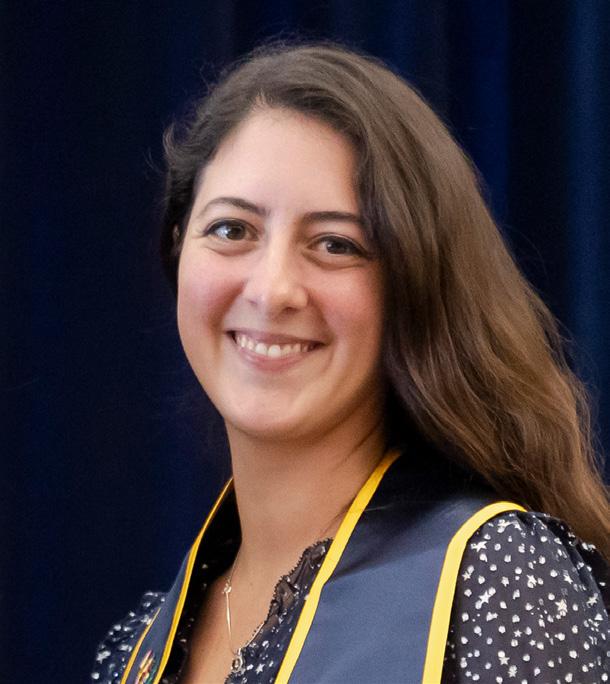
During her service as an EBCLC board member, Marian Avila Breach demonstrated a deep commitment to low-income and immigrant communities. A deeply compassionate thinker, Avila Breach joined EBCLC as a student in the Clean Slate Clinic, where she fiercely advocated for unhoused individuals and offered counsel to clients seeking conviction record relief — often leveraging her expertise in Spanish legal translation to ensure access to justice. Her impact on EBCLC has been deep and lasting, having served for two years on its Board of Directors, where she brought creative and successful strategies to increase resources to EBCLC. She played a pivotal role in expanding EBCLC’s outreach to UC Berkeley Law students, helping to broaden its clinical community. In addition, Avila Breach served as a student leader in La Alianza’s Tenants’ and Workers’ Rights Workshop. A force in the ongoing fight for immigrant and justice-involved communities, she will return to EBCLC this fall as the 2025 Brian Lewinstein Fellow in the Education Defense and Justice for Youth Practice.
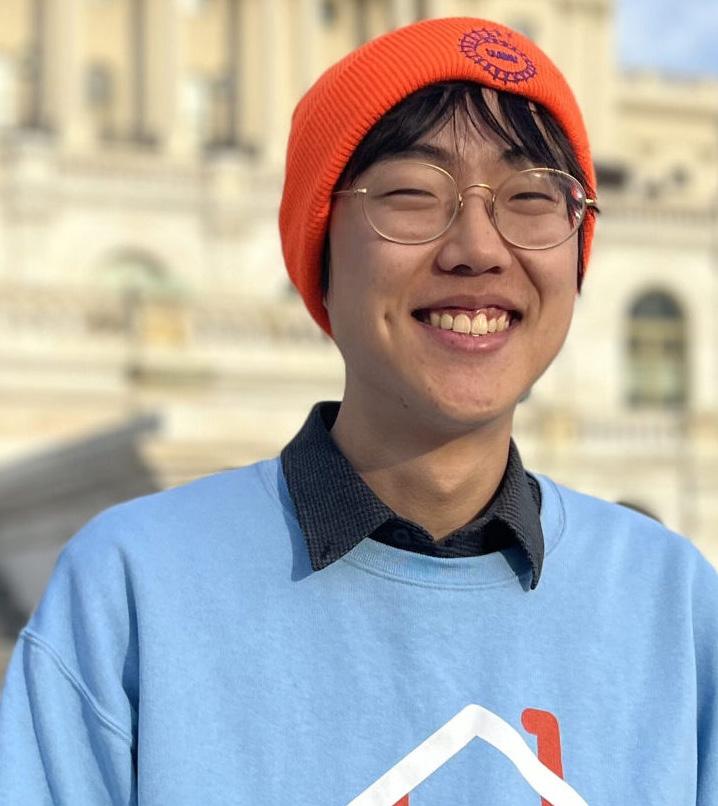
3L Isaiah Paik
Isaiah Paik joined EBCLC’s board this year, building on a deep and evolving commitment to the organization. Paik began his tenure in the housing practice as a volunteer with the Tenants' Rights Workshop. Later, as a Housing Clinic student, he took on a more advanced role — representing tenants facing eviction through creative litigation and negotiation strategies.
In EBCLC board meetings, Paik brings incisive questions and a strong dedication to understanding the nonprofit sector. He is a thoughtful contributor to EBCLC’s sustainability and growth and serves as a compelling ambassador for the organization, working closely with fellow student board members.
“One of the most important lessons I have learned this semester is that immigration advocates need to become used to constantly walking up an upward hill.… I admire the EBCLC staff, attorneys, and clients, who keep walking, despite the hurdles that the government throws at their clients.”
— EBCLC Immigration Clinic student Audrey Bryne ’25
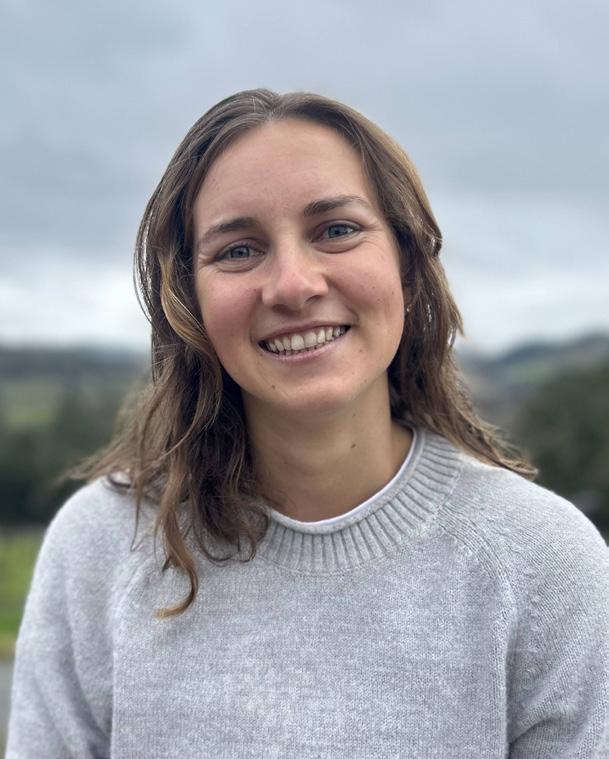
The Social Enterprise Clinic serves as transactional counsel for its social enterprise clients — for-profit and nonprofit businesses that use market-based strategies to address social and environmental issues. The clinic prepares law students to be transactional lawyers while providing high-quality legal services to enterprises serving disenfranchised communities. Students explore the power and limits of market-based methods and examine the intersections of law, business, and racial equity. The clinic advises clients on corporate governance, compliance, contracts, and entity formation. Legal teams collaborate with clients to minimize risk and advance social impact, supporting sustainable, community-driven solutions to racism, poverty, and climate change.

Alina Ball, who started at the law school in January, leads the new Social Enterprise Clinic, which will enroll its first students this fall.
“This is an opportunity to build on the work that I’ve been doing over the last decade, but now I can take that to a deeper level,” says Ball, who ran a similar clinic at UC Law San Francisco.
Ball’s career as a clinical professor grew out of her passion for two distinct areas: transactional law and racial justice. She went to UCLA Law knowing she wanted to do transactional work in economically marginalized communities.
“Lawyers have been doing this type of work for a really long time, but there weren’t ready made pathways to how to do this — there wasn’t a how-to guide of how to be a transactional social justice lawyer,” she says.
Ball worked at Morrison & Foerster in San Francisco and Washington, D.C., focusing on representing private and public companies in debt, equity, and M&A transactions. She then got a teaching fellowship at Georgetown Law, where she also earned an LL.M honing her passion for clinical education. Now at UC Berkeley Law, she leads the Social Enterprise Clinic with a clear vision: Students will serve as outside counsel to local businesses advancing social and environmental missions, providing support with corporate governance, formation, compliance, and contracts.
“My two guiding principles have always been a desire to use the technical skills that allow me to do creative problem solving within communities that I deeply care about and authenticity — really making sure that I’m able to live my values in the work that I’m doing.”
Connect with us
clinicalprogram@law.berkeley.edu law.berkeley.edu/experiential/clinics
@BerkeleyLawClinics UC-Berkeley-Law-Clinical-Program